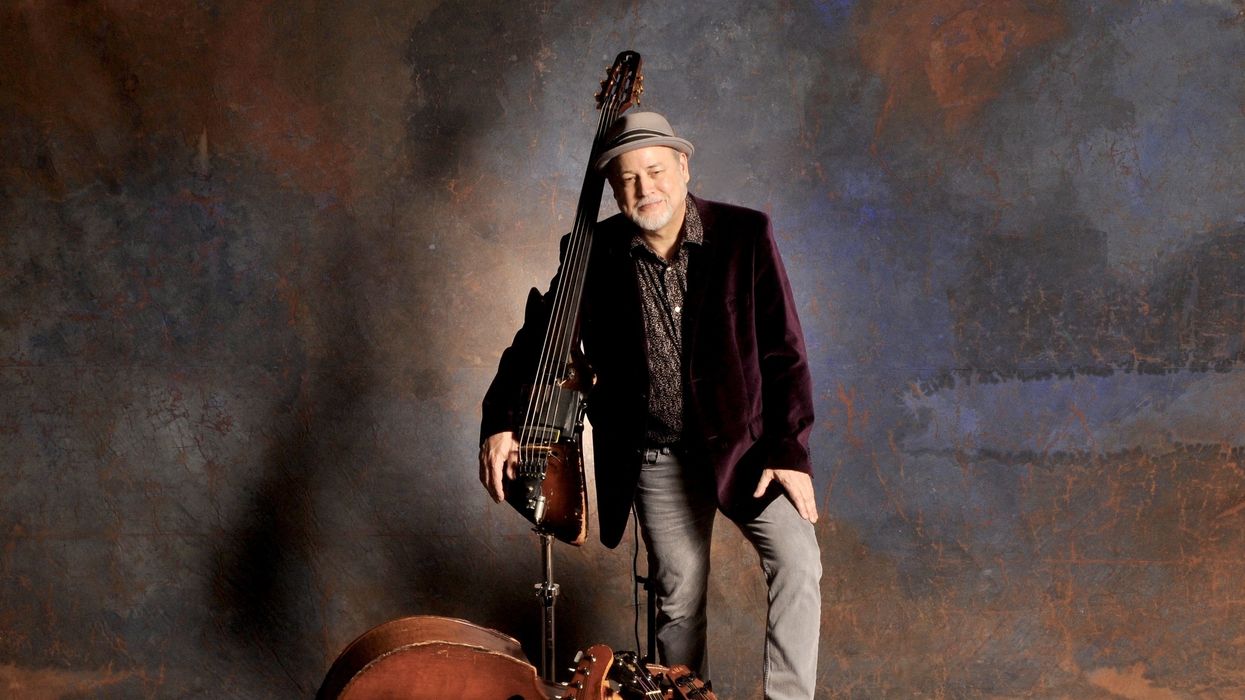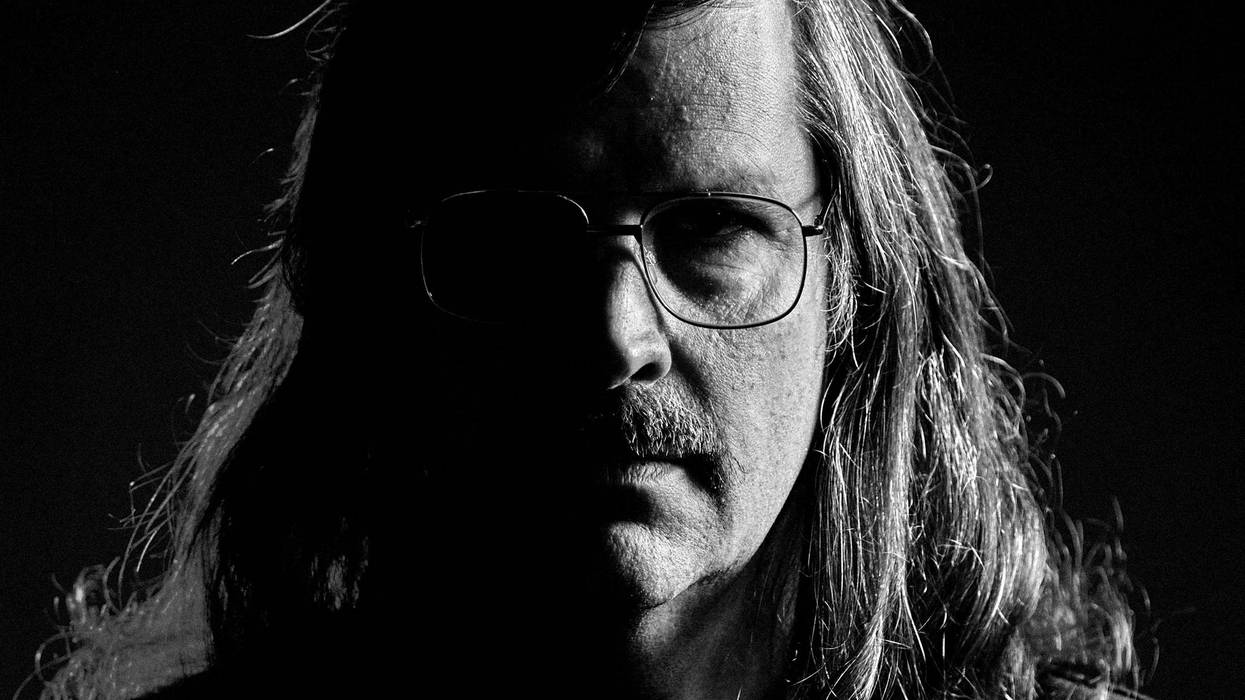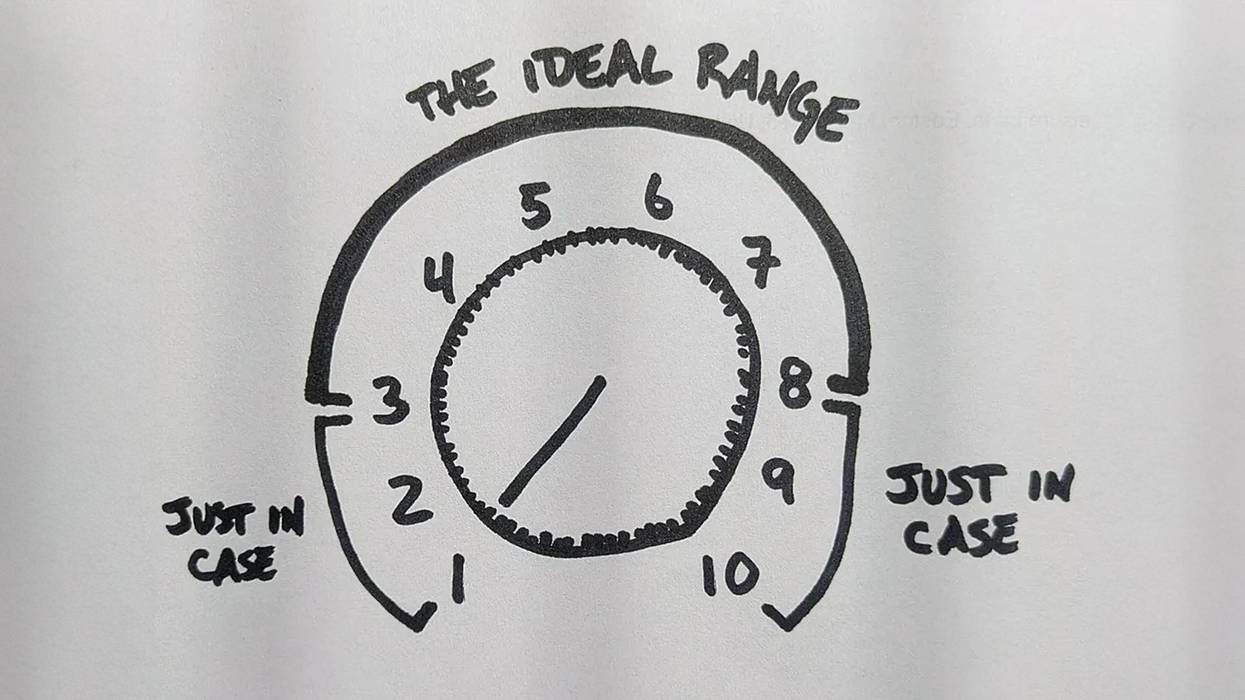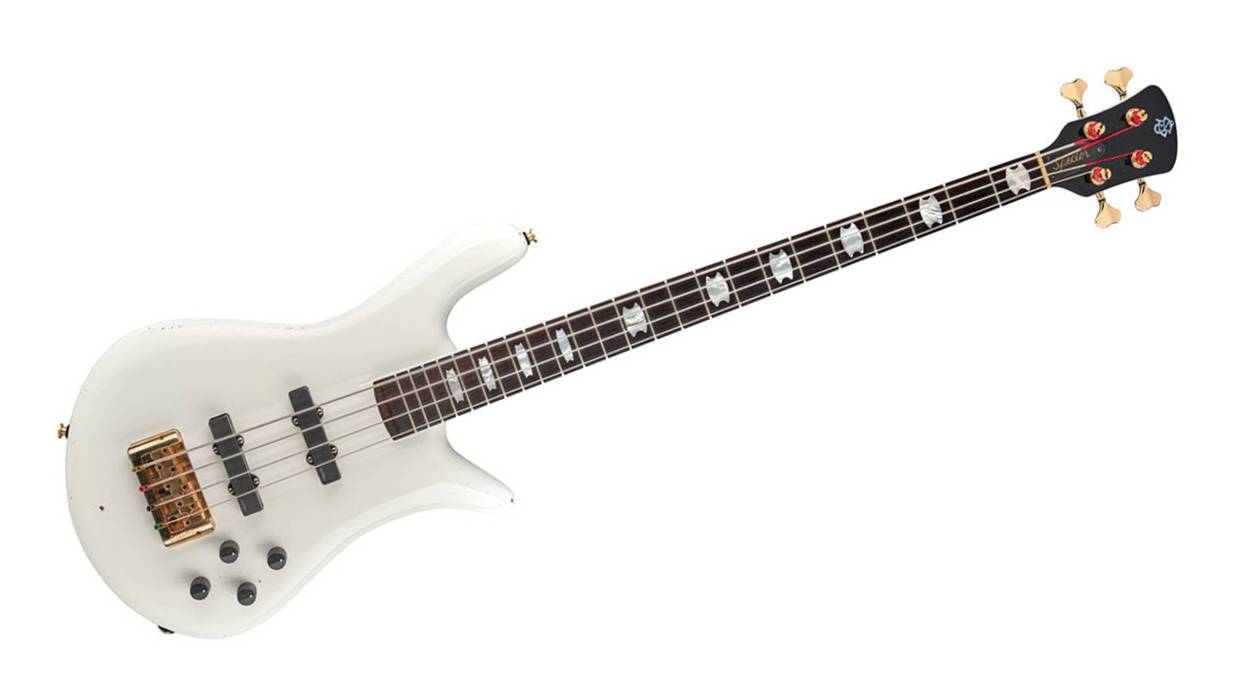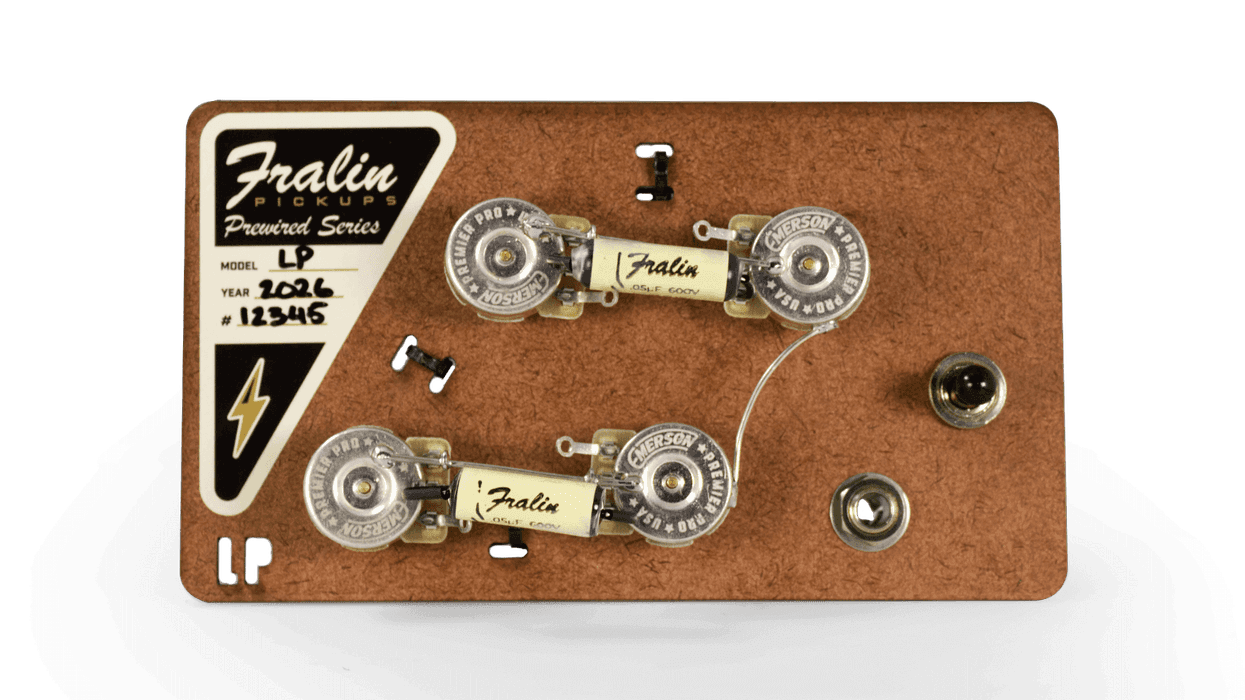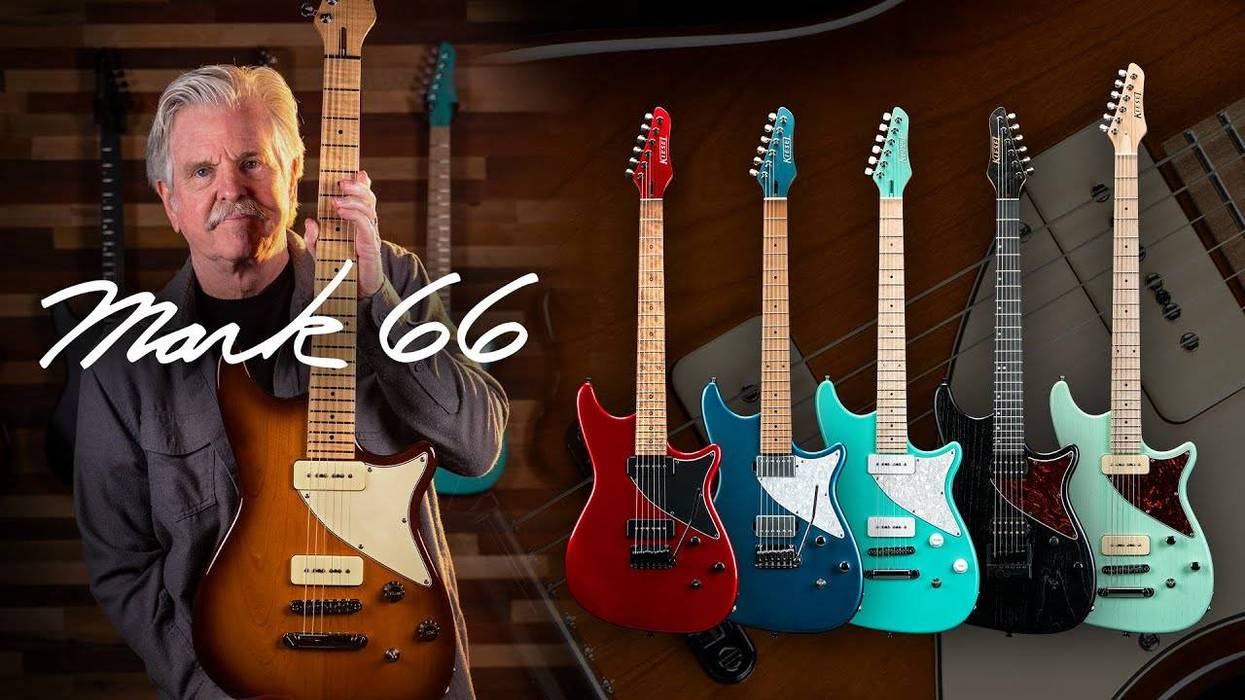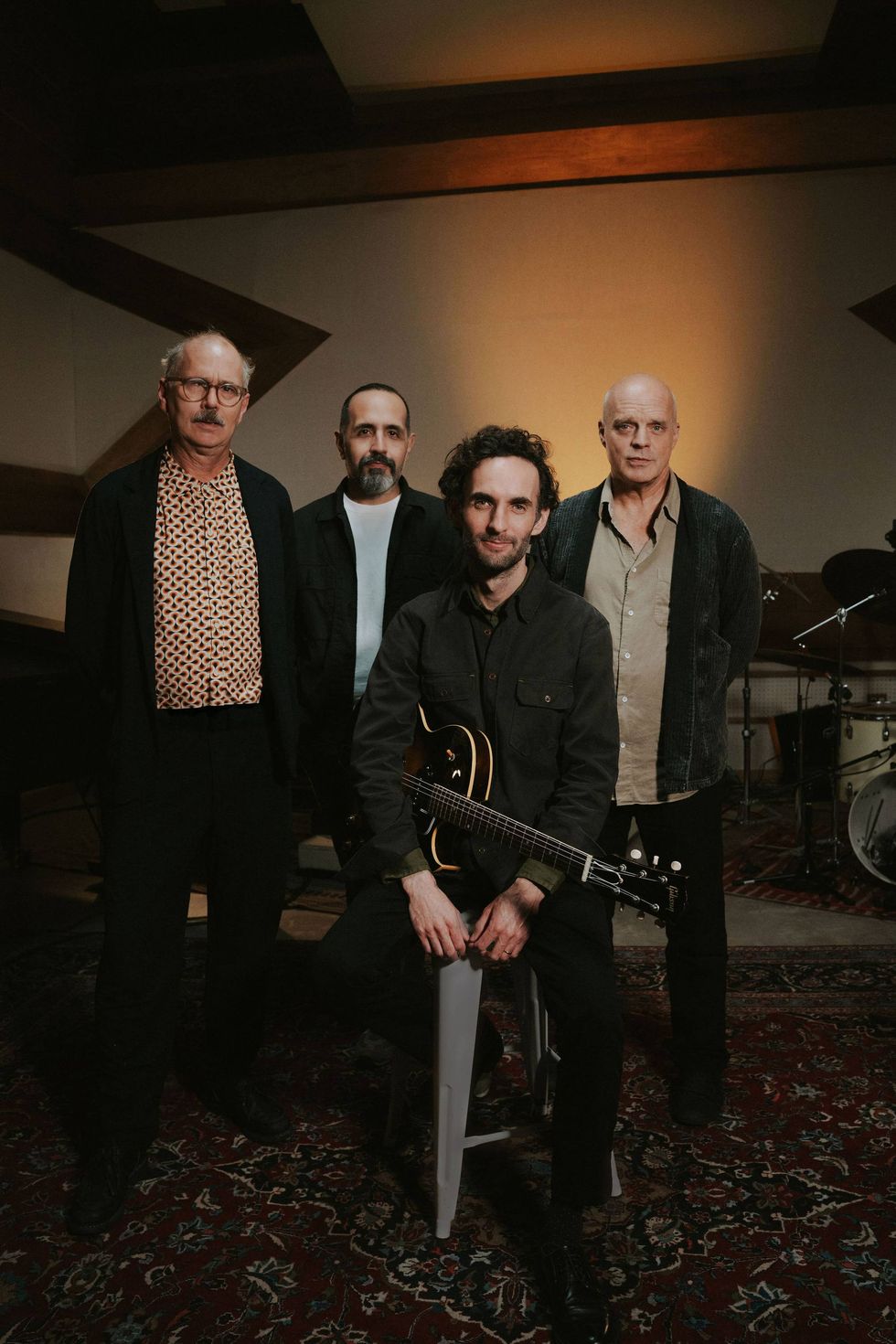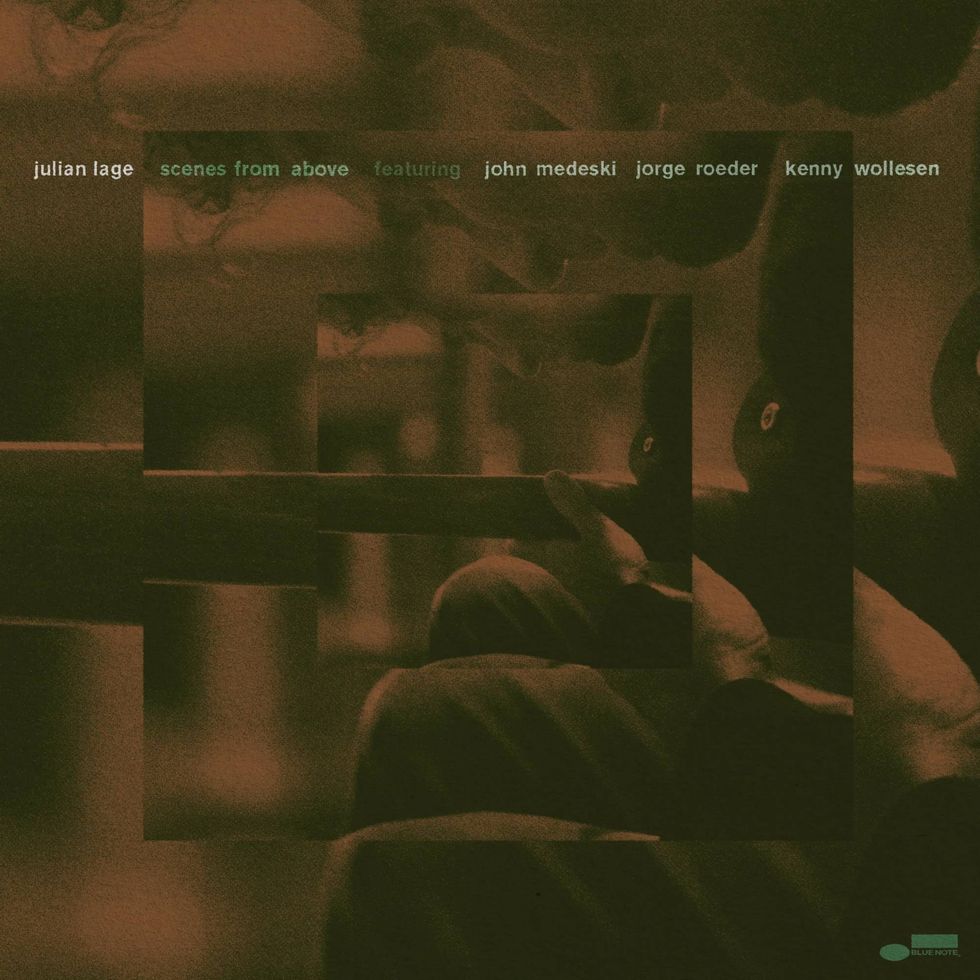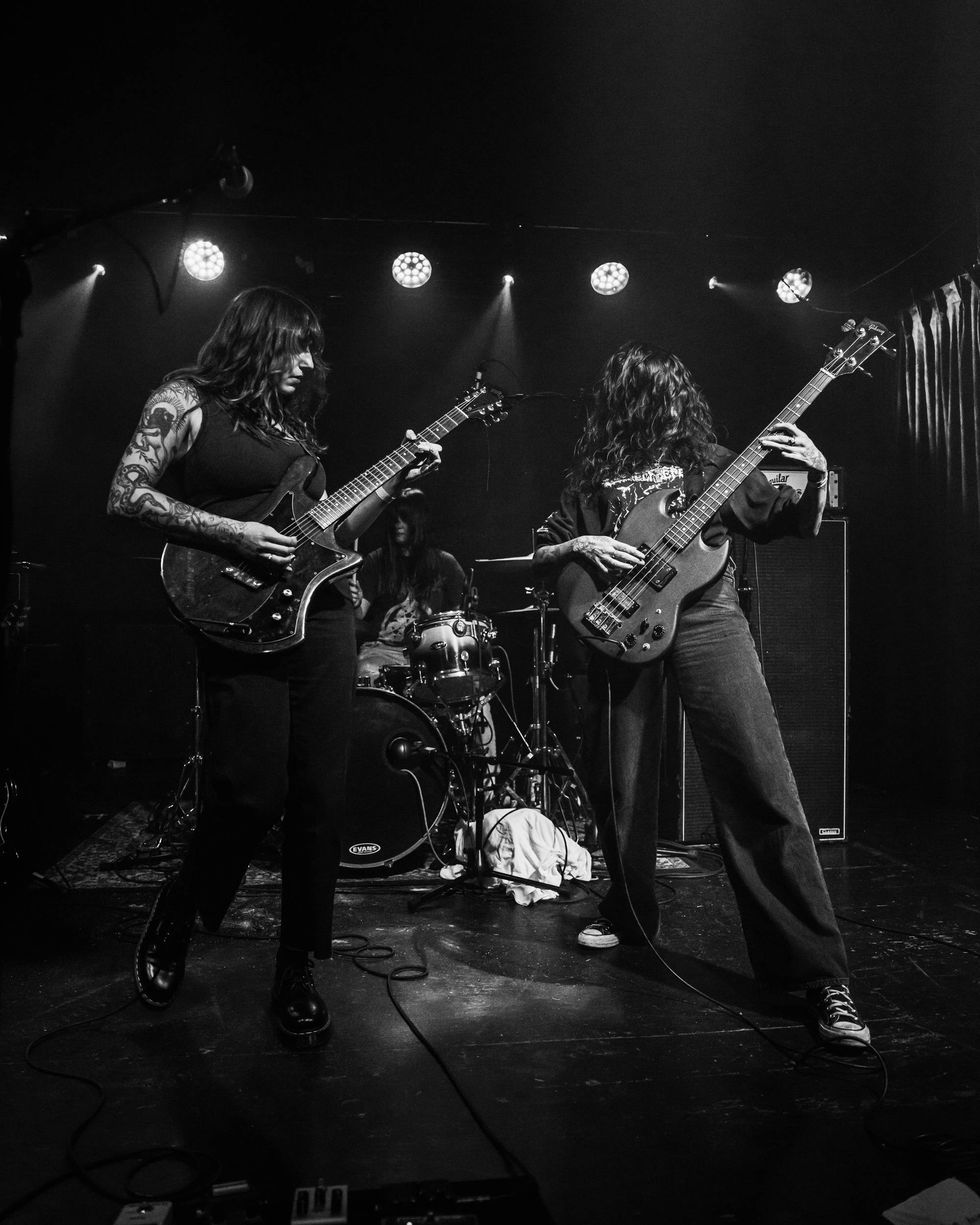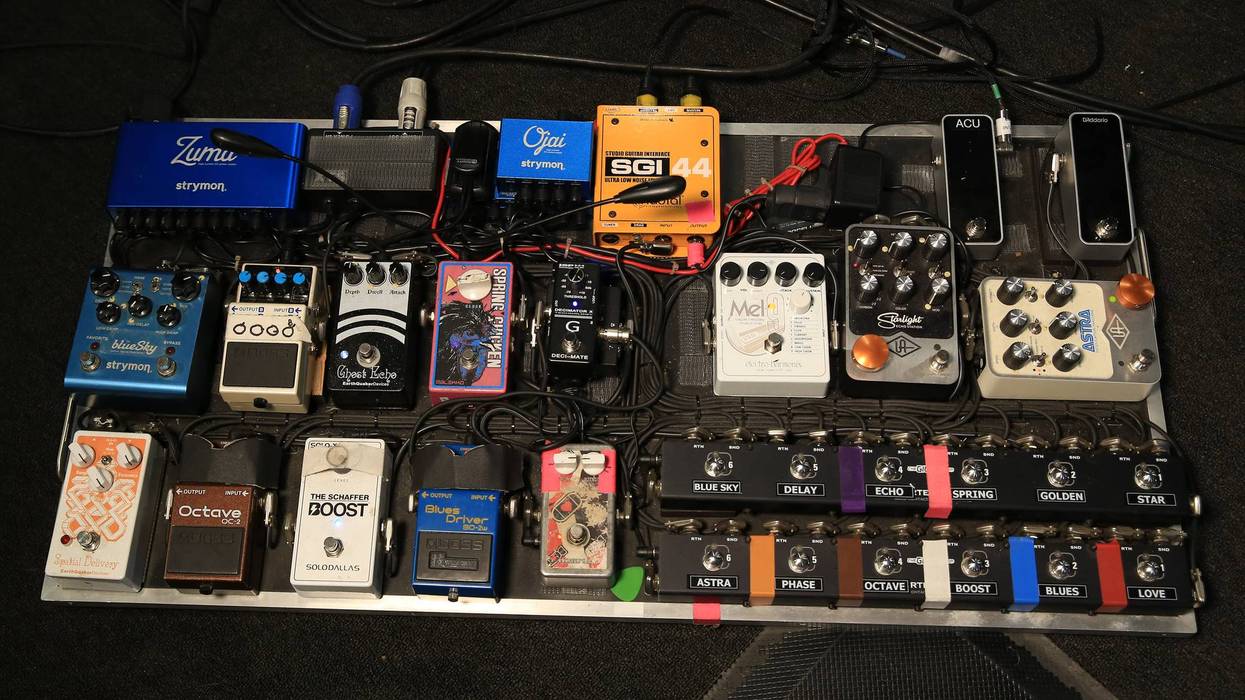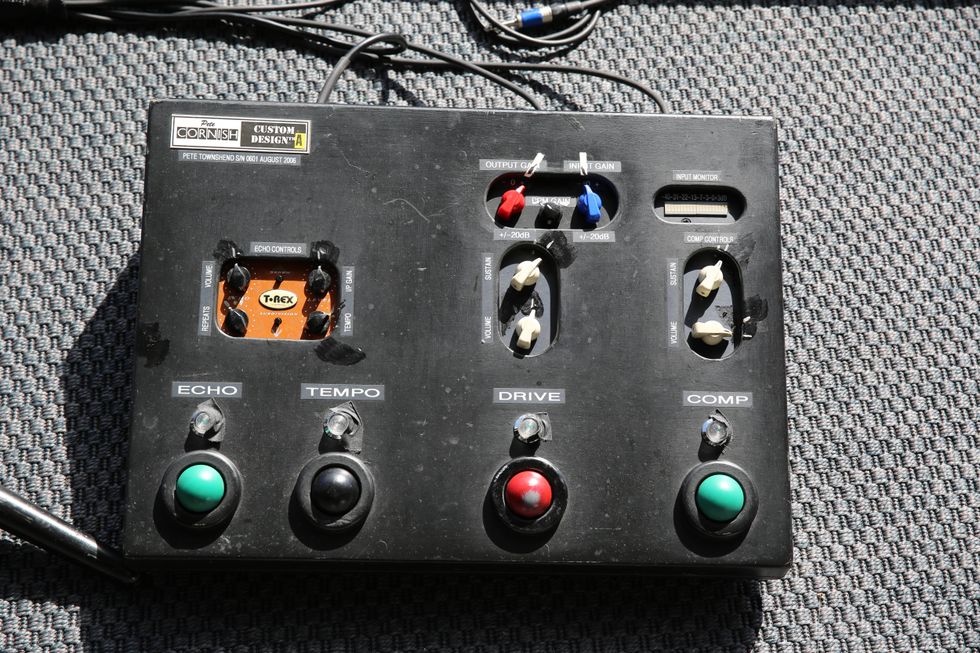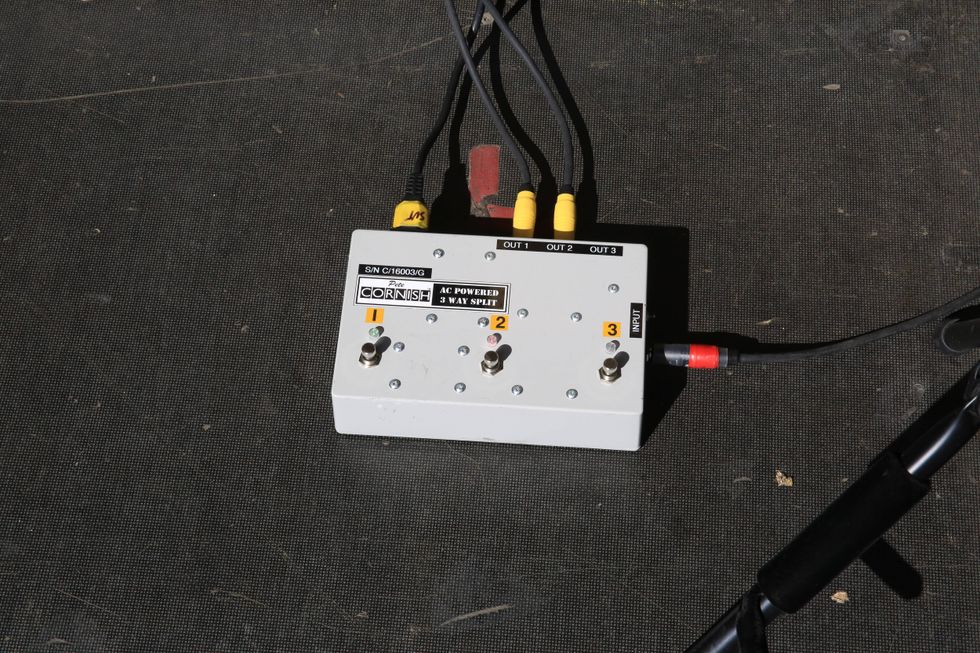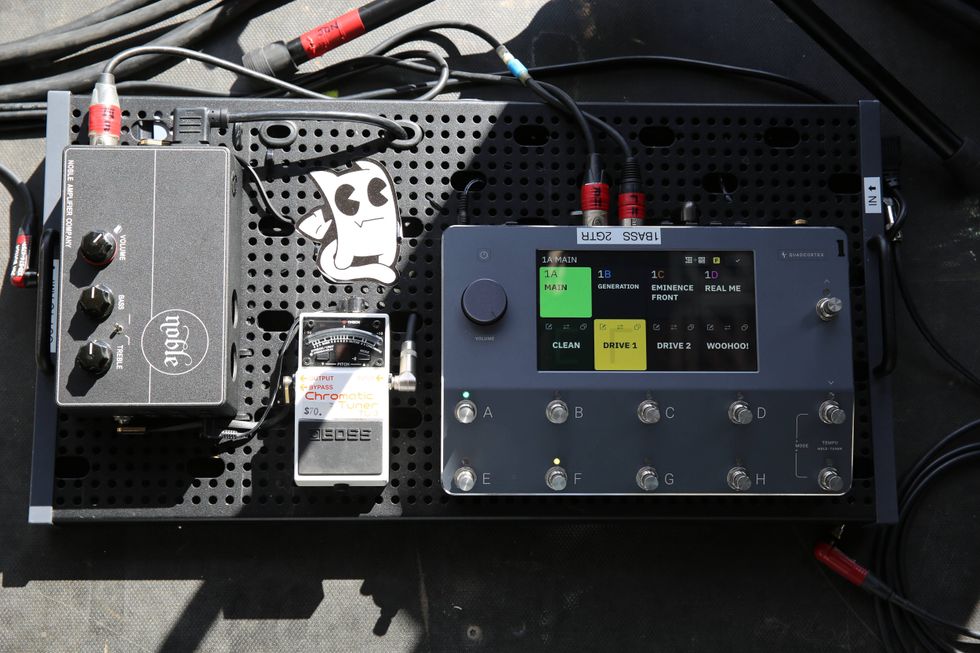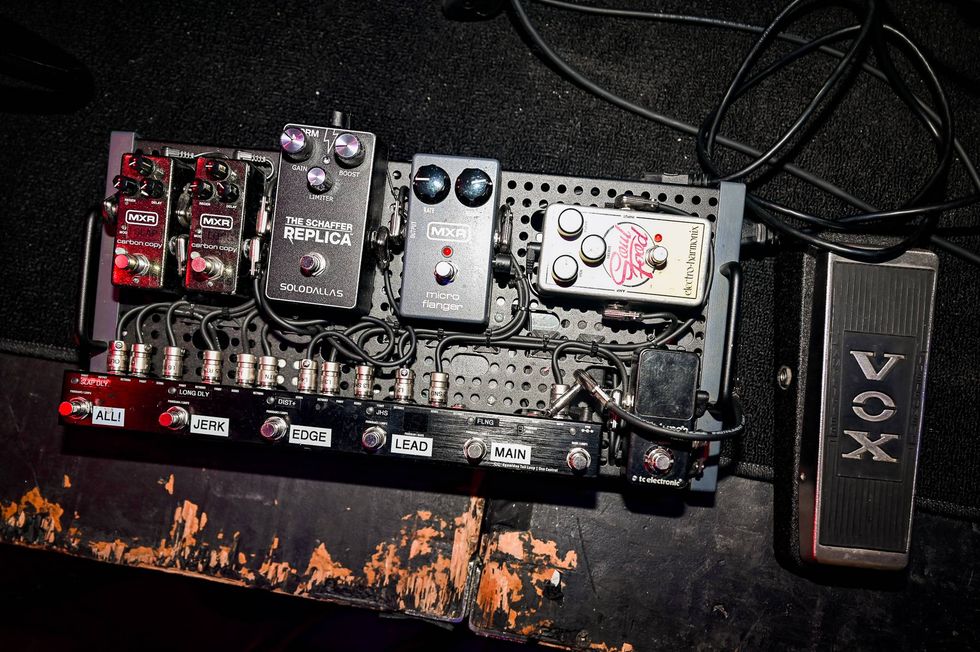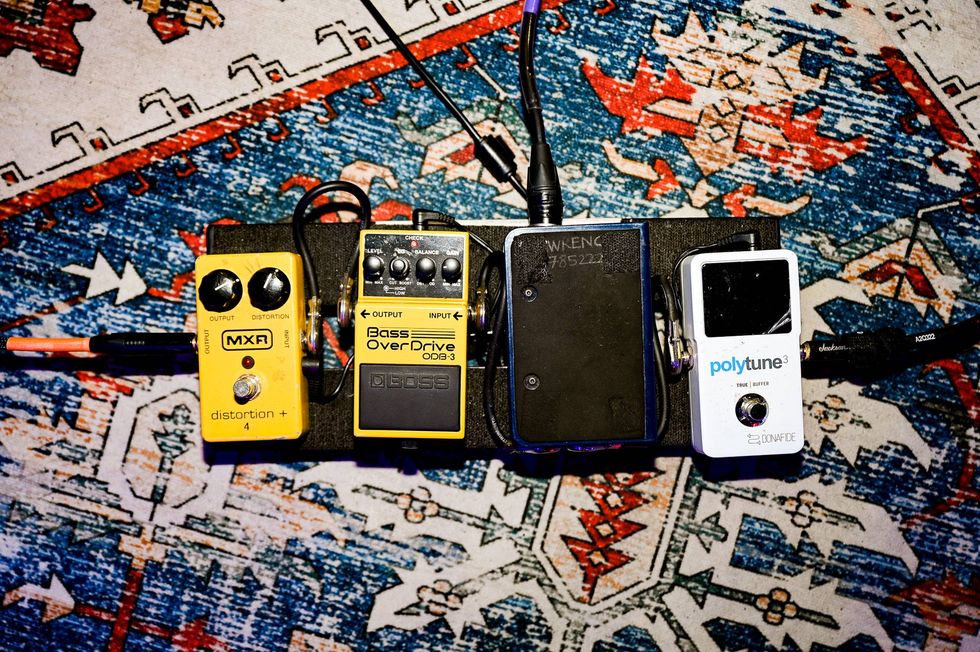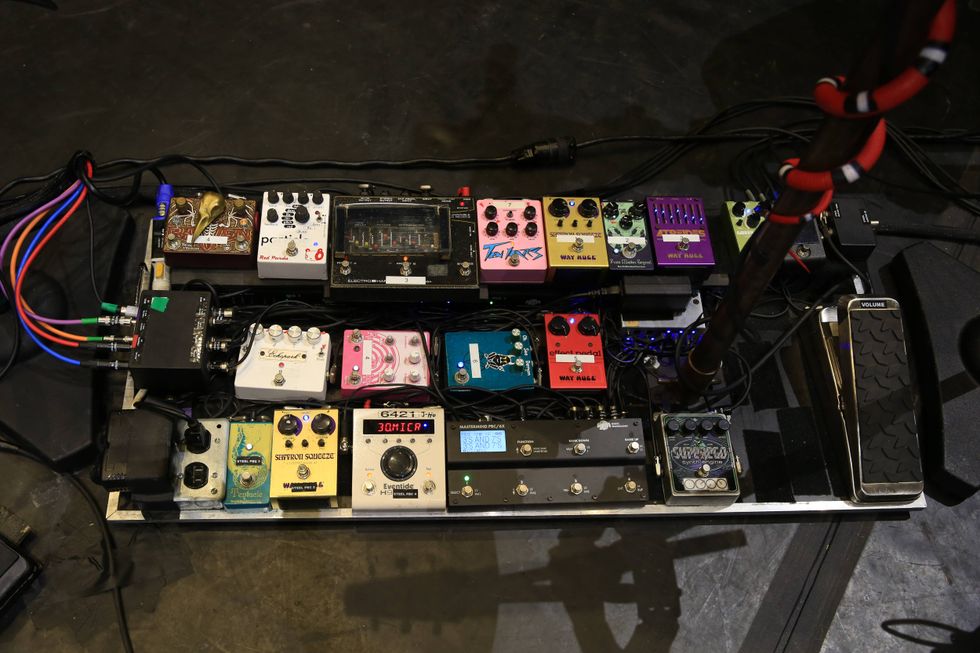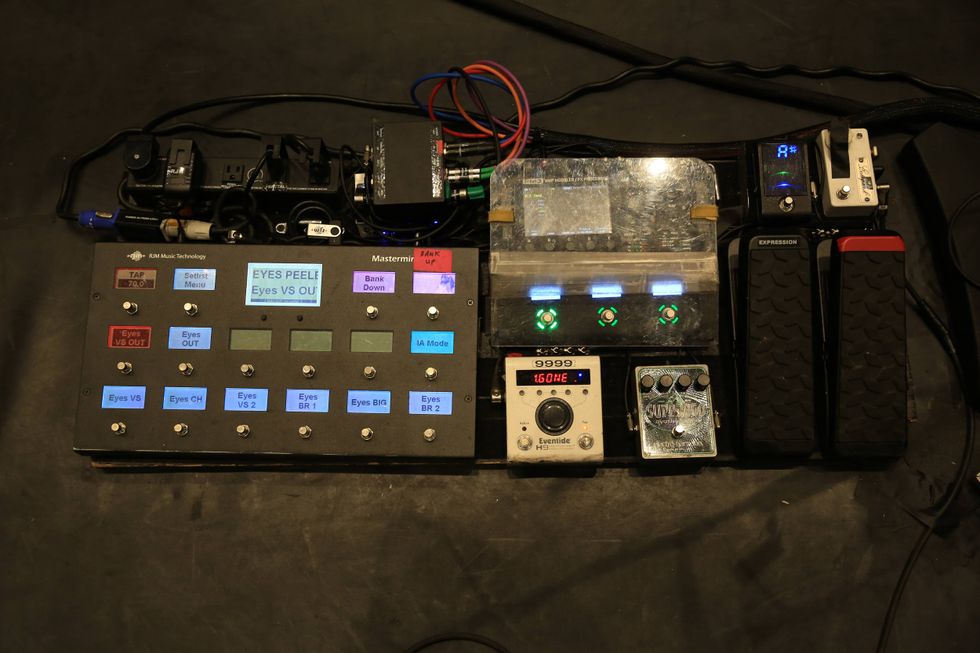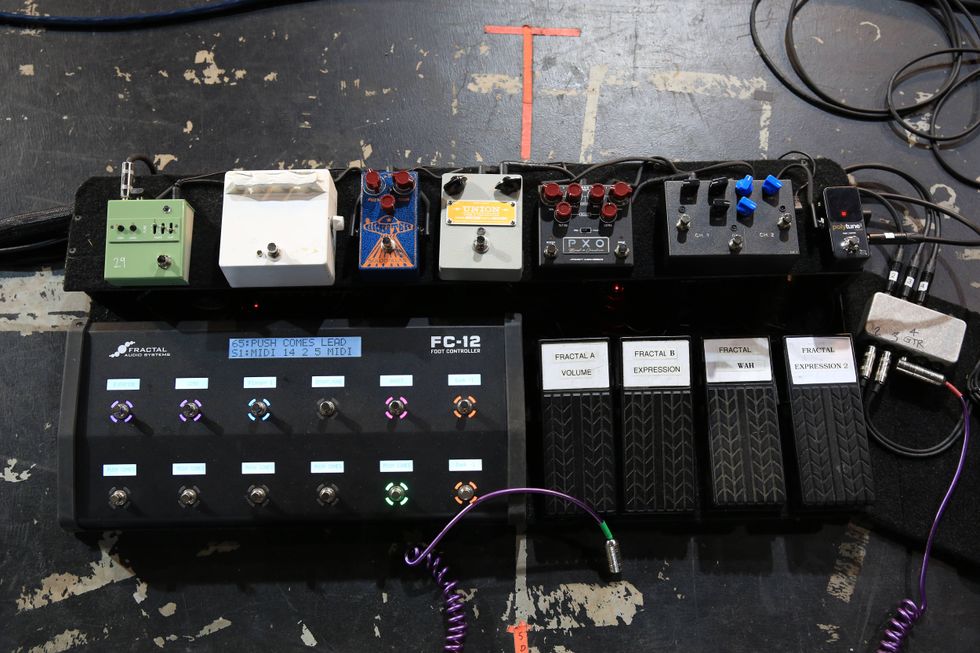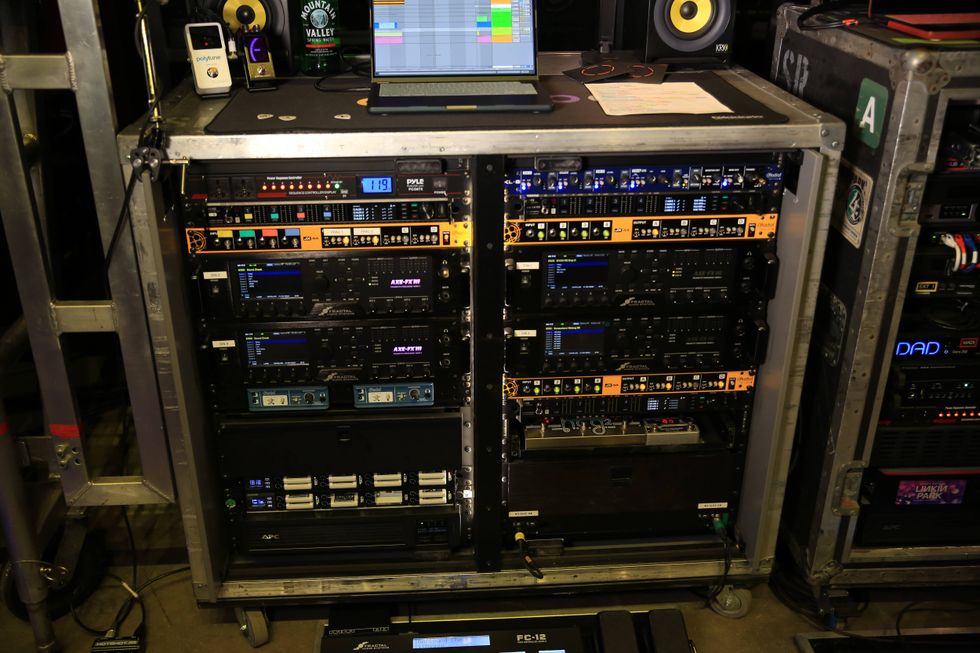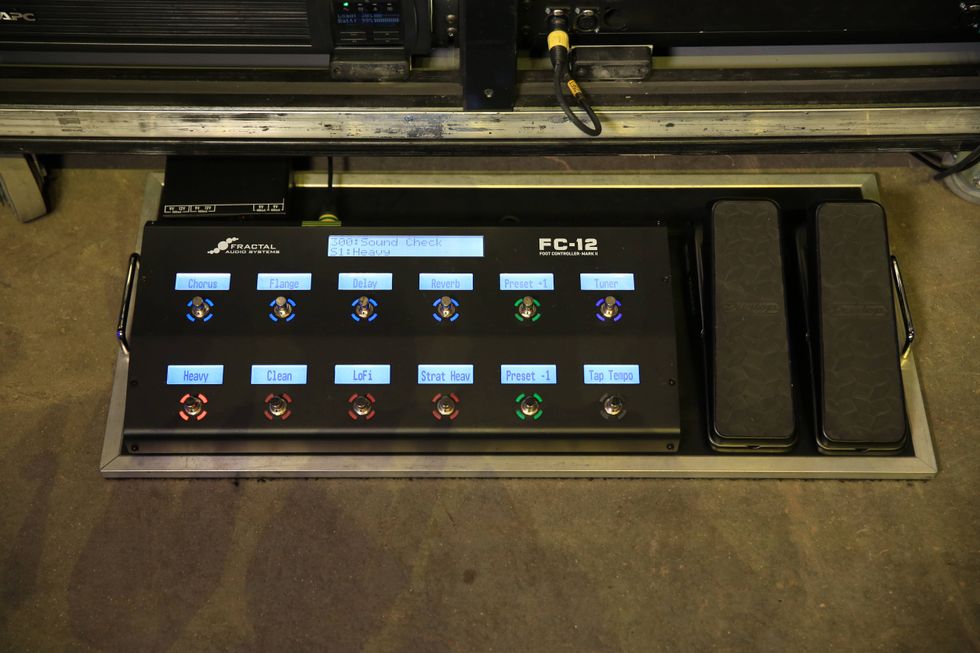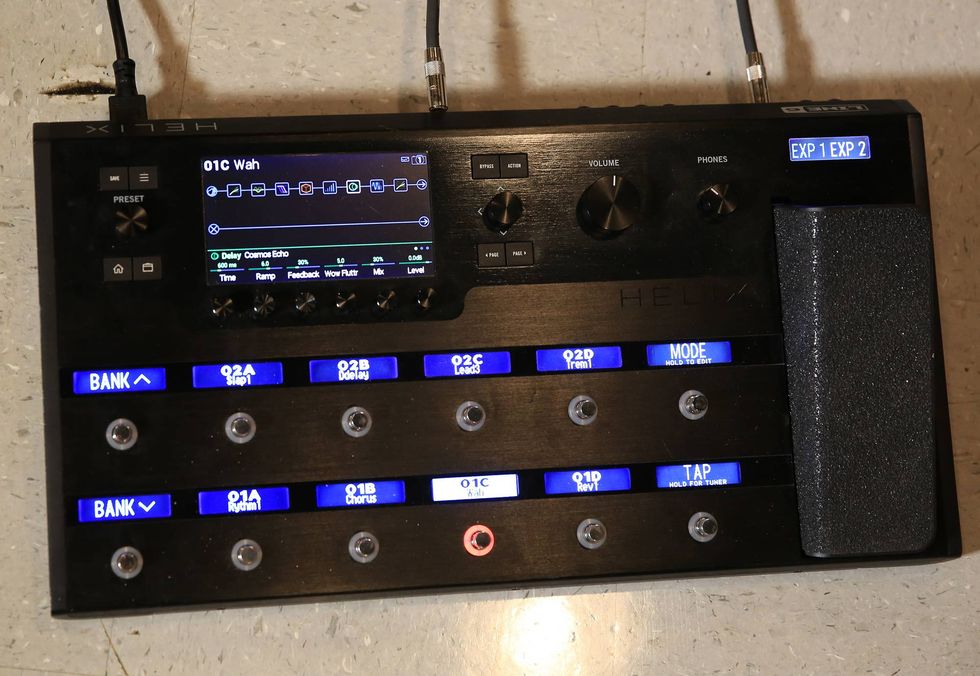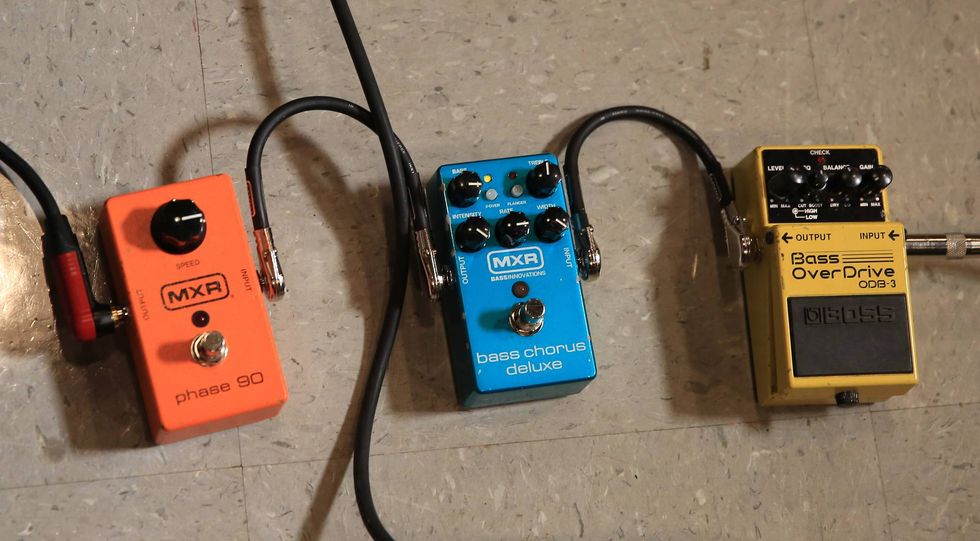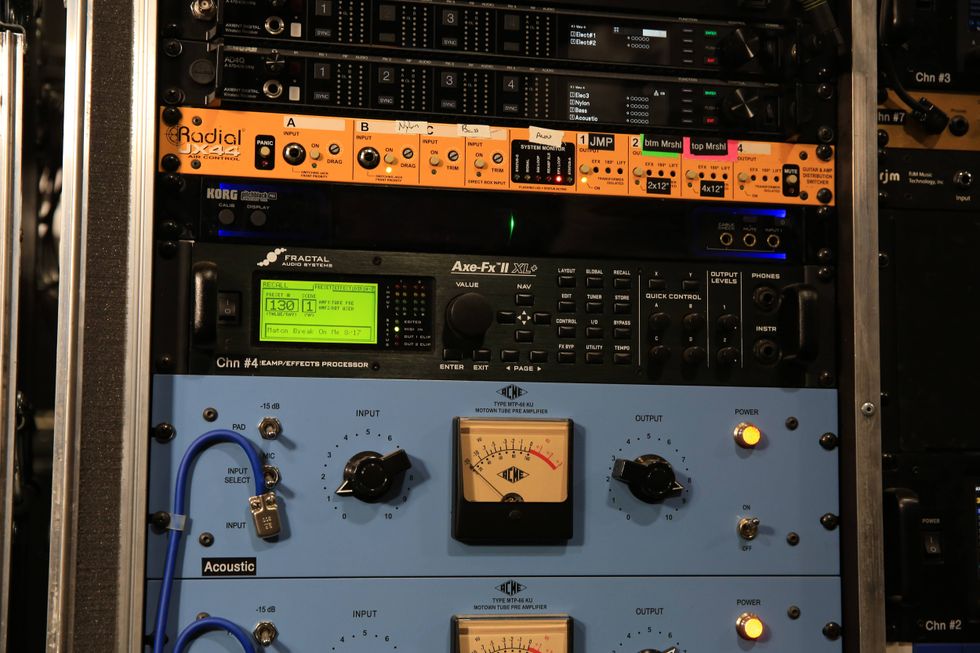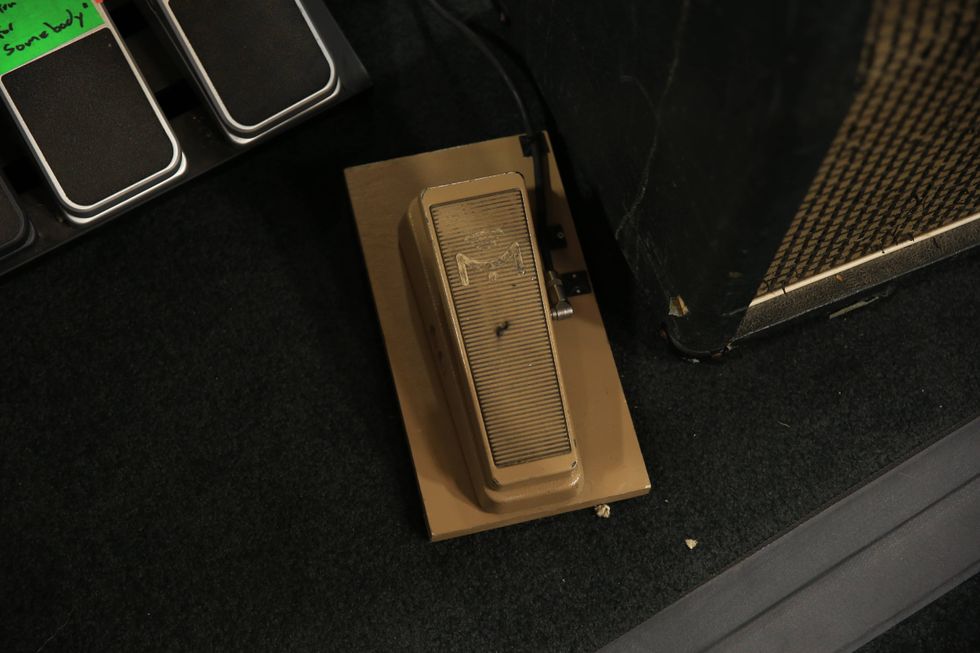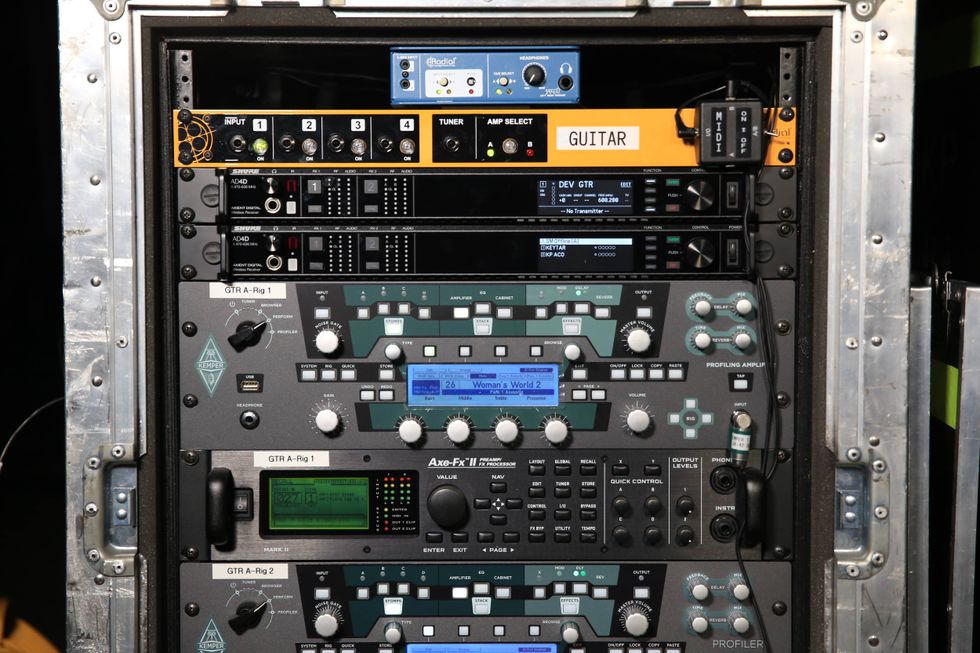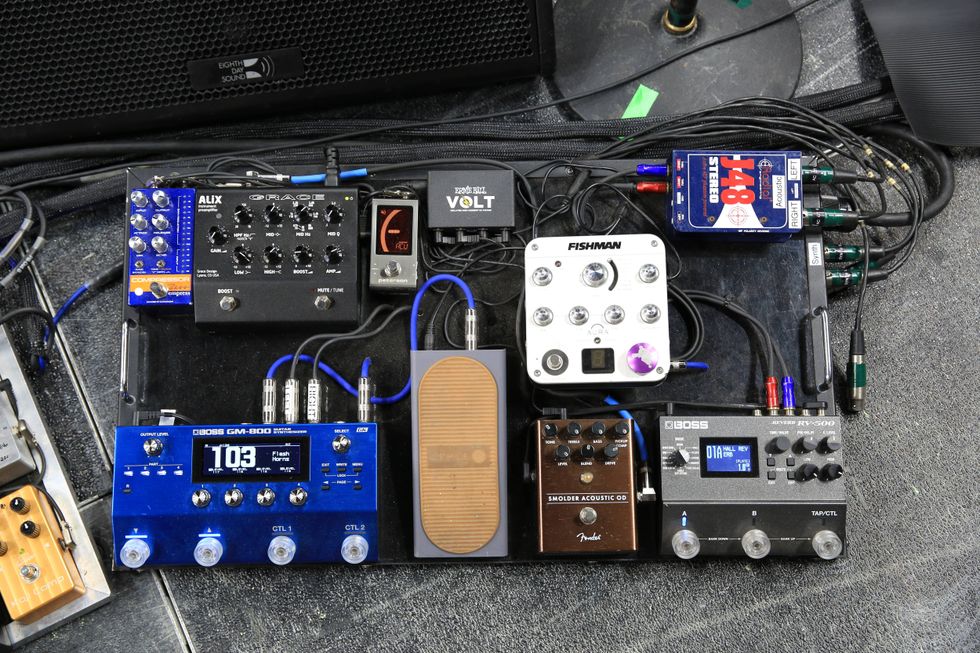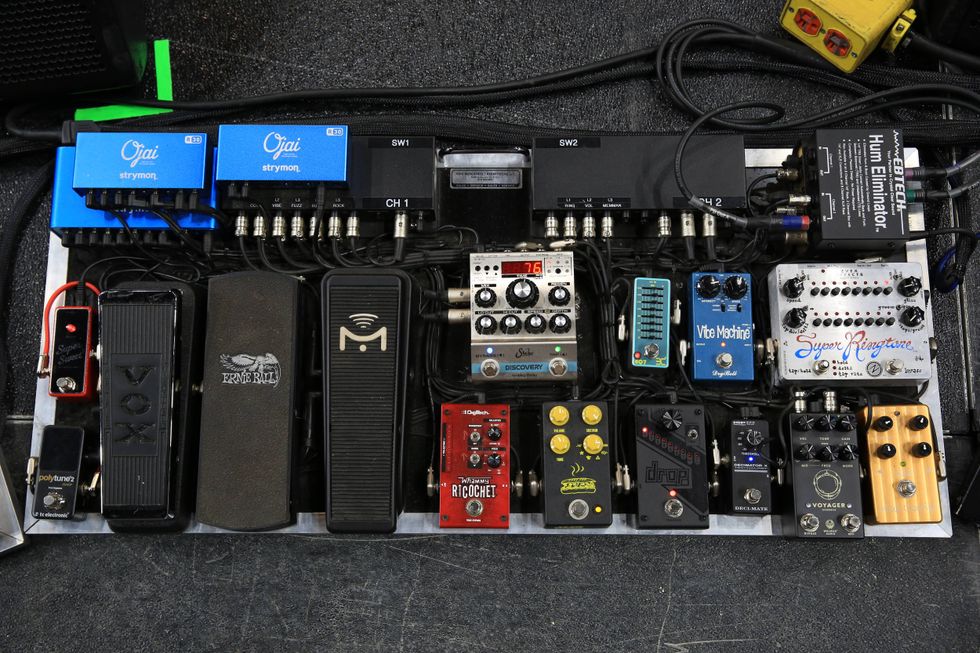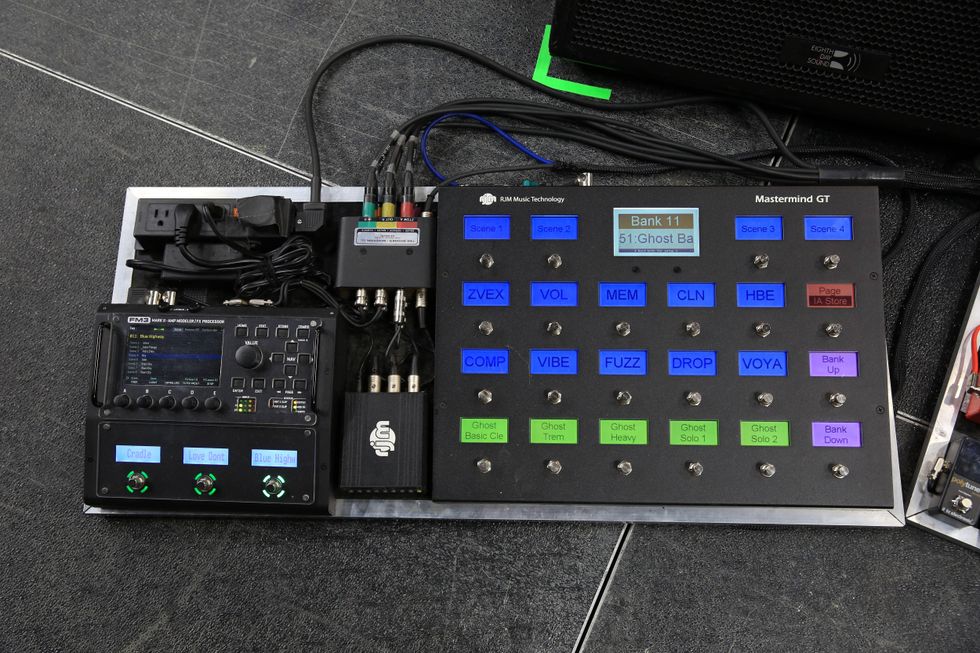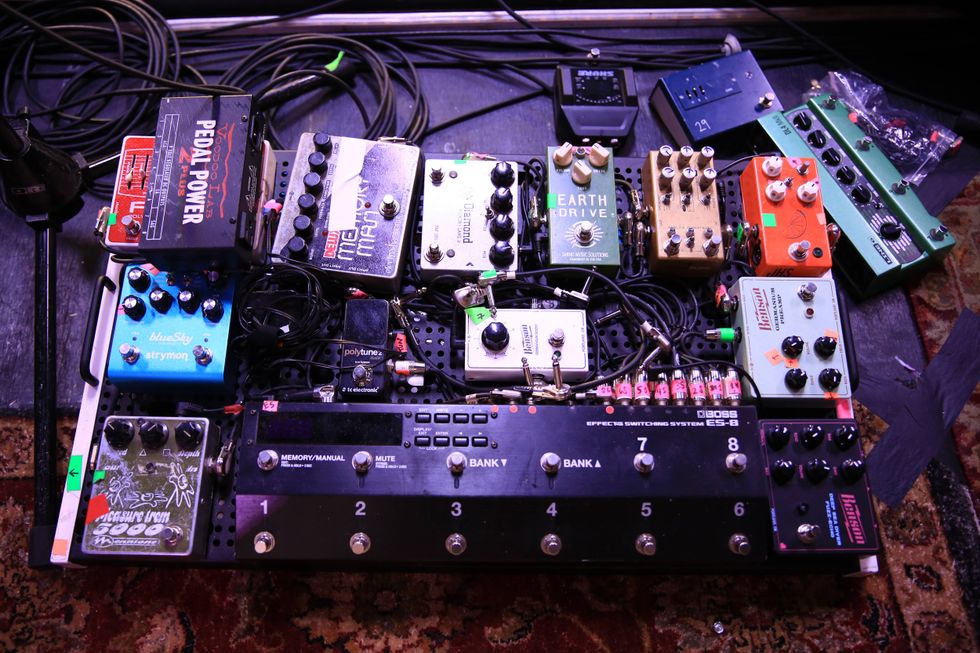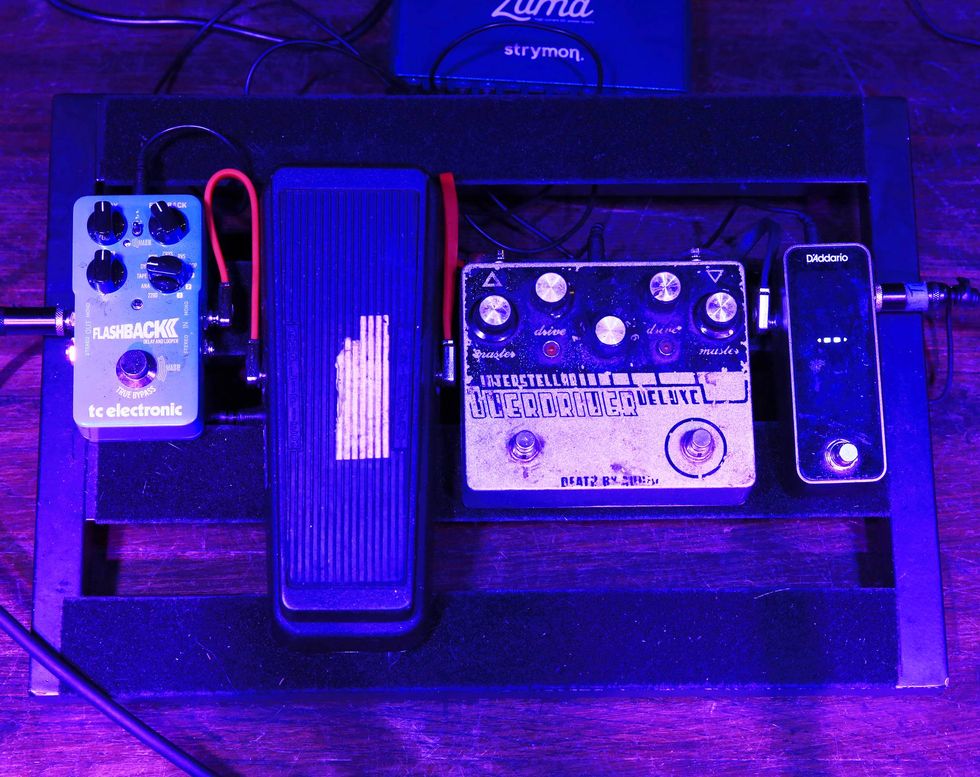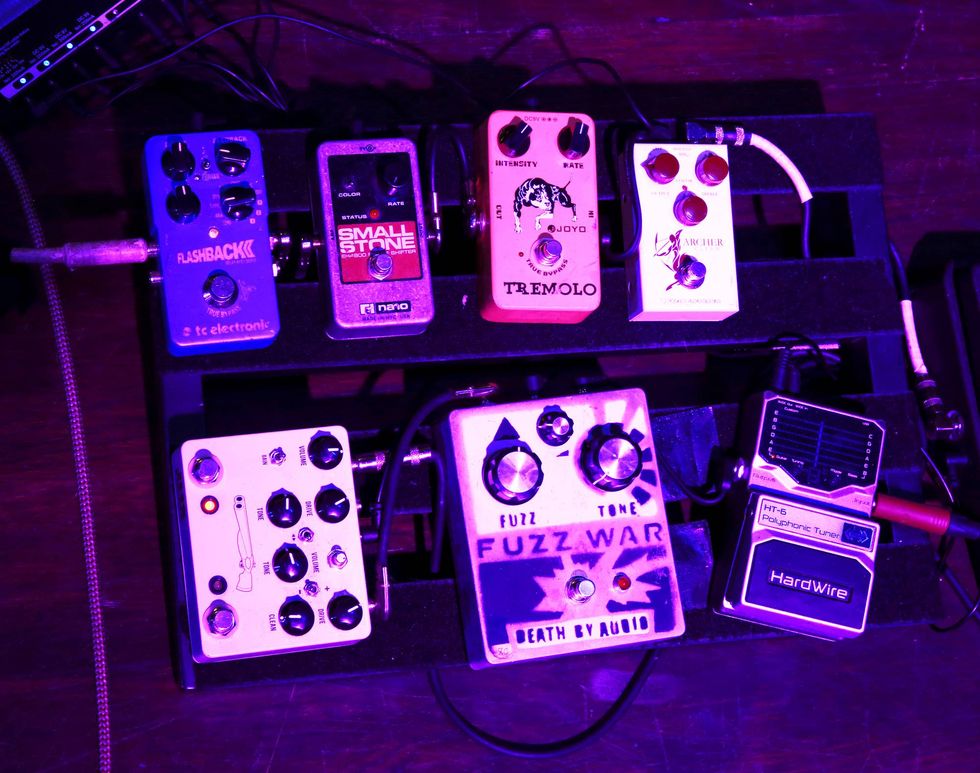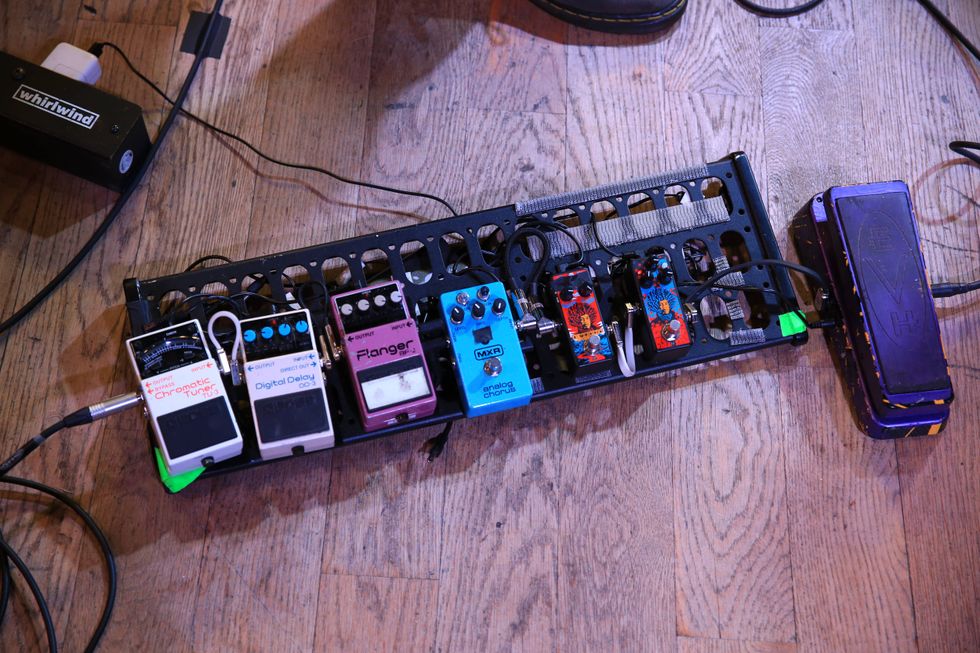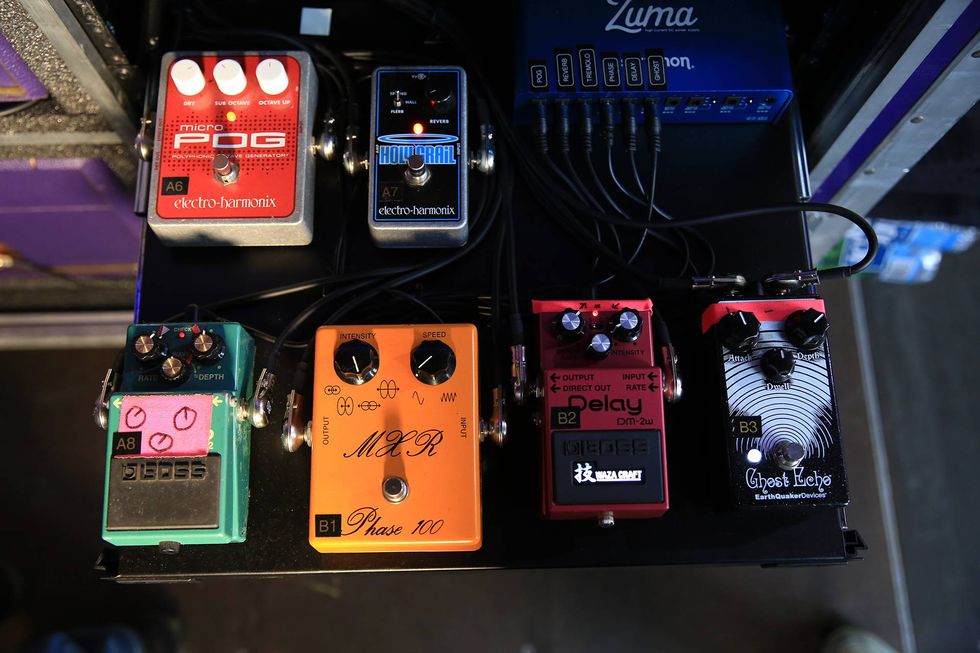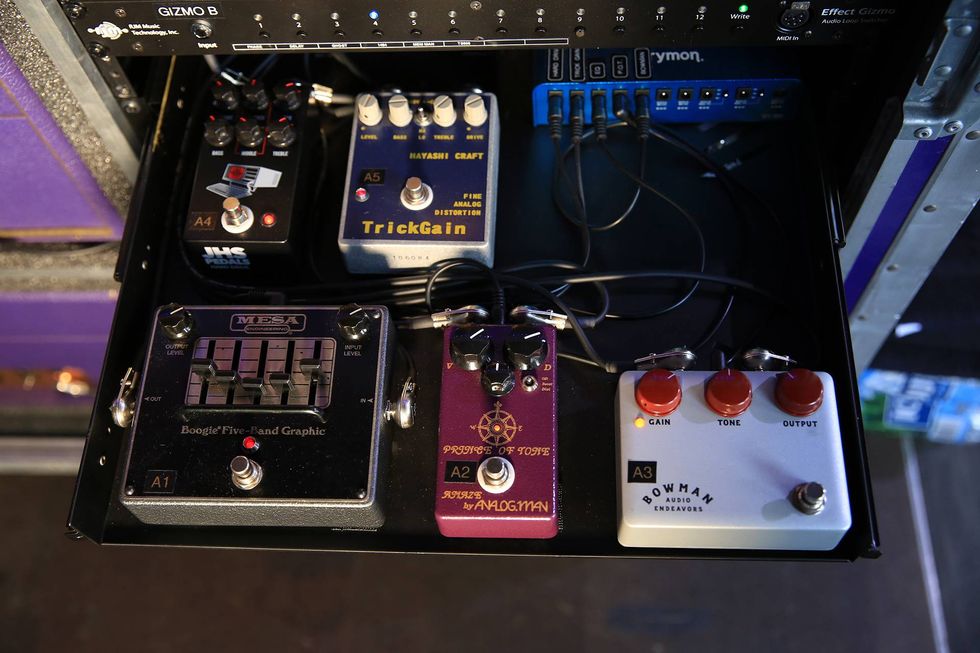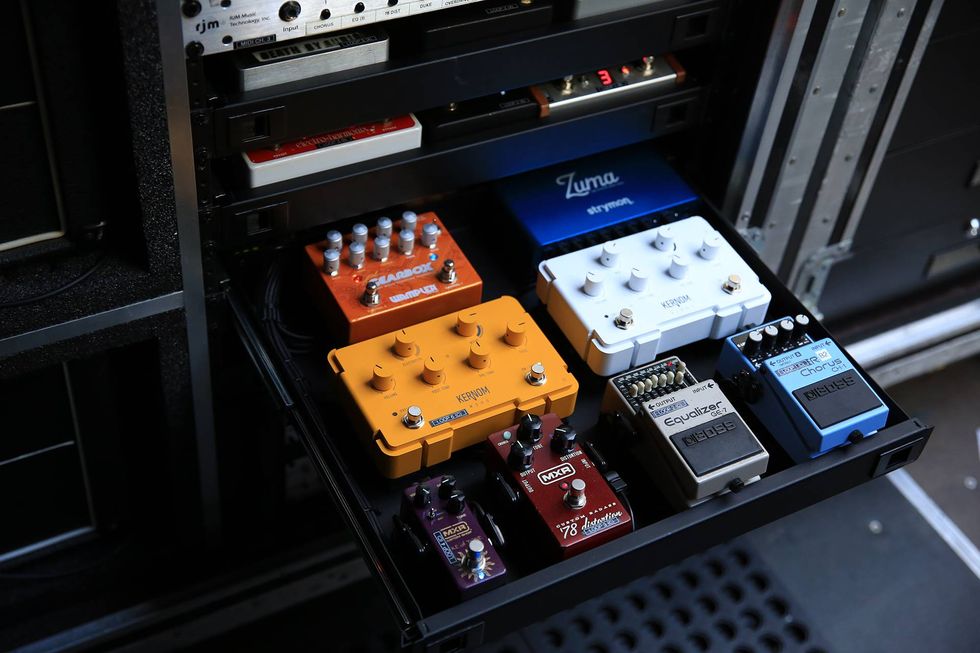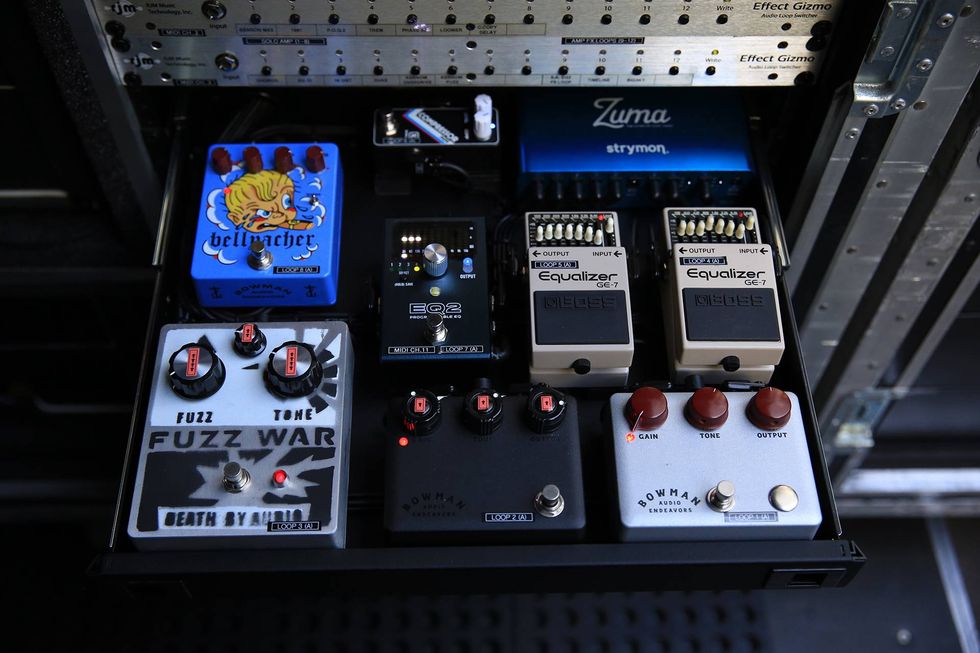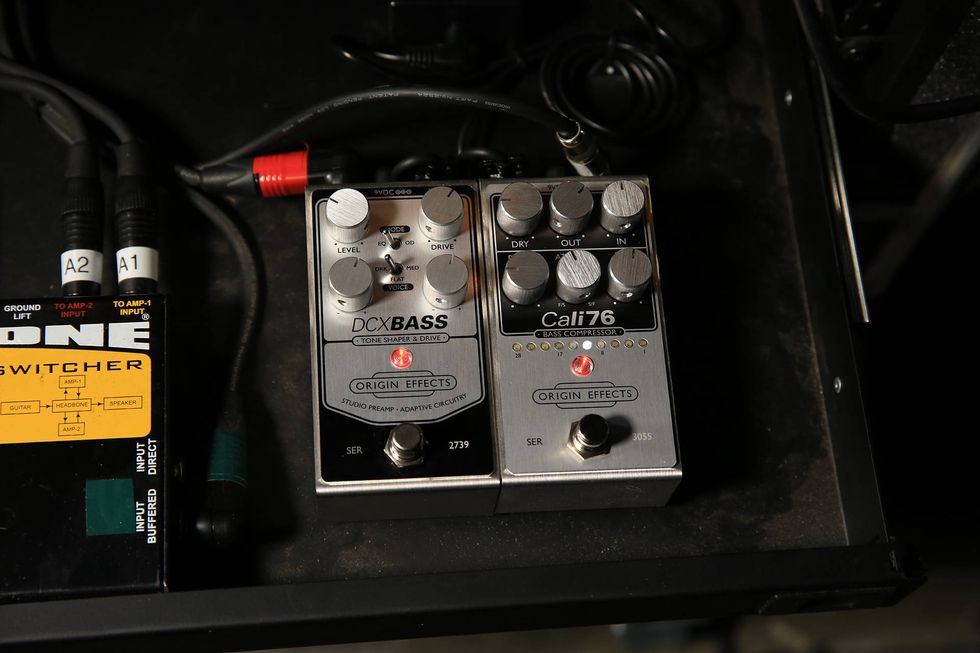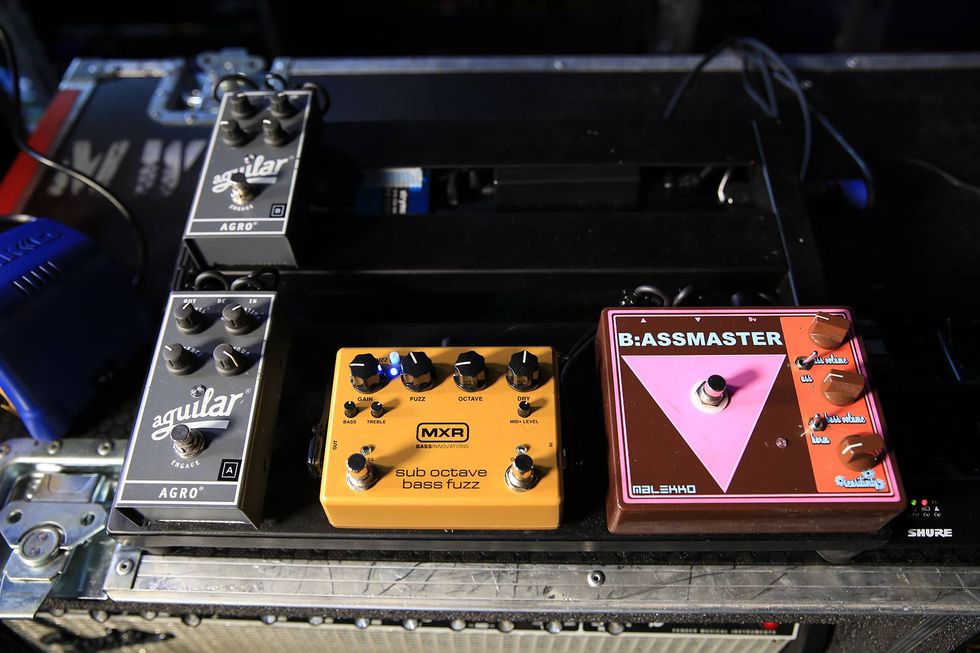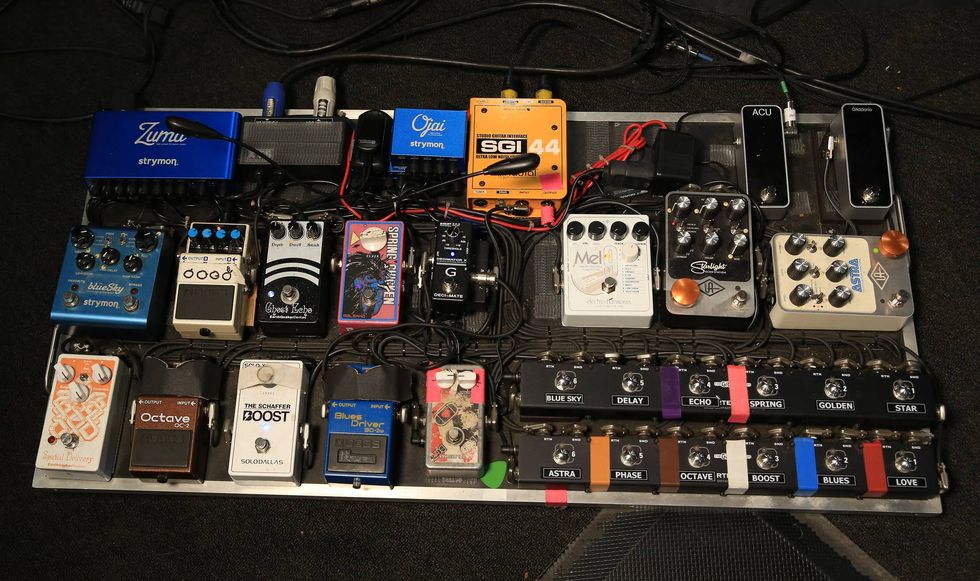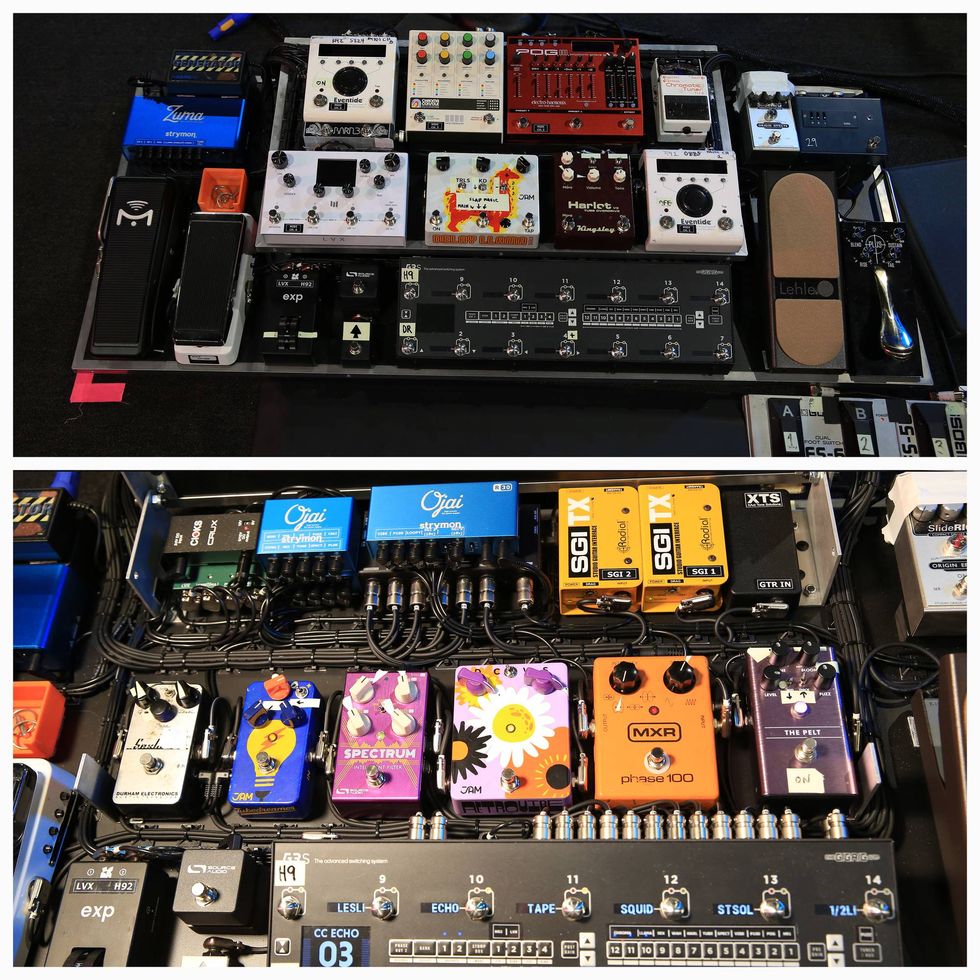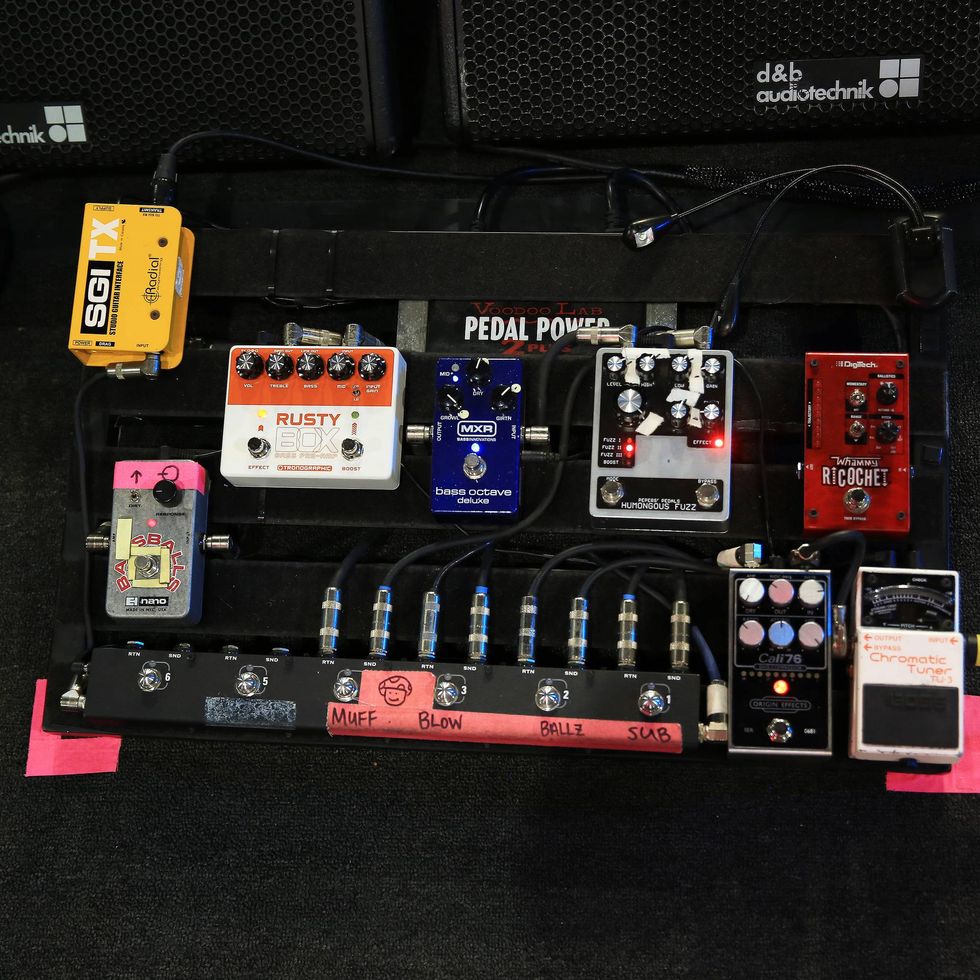“There’s always something to do in Nashville,” grins Dave Pomeroy. For Pomeroy, this is especially true. He’s the president of the Nashville Musicians Association (NMA), the city’s branch, or “local,” of the American Federation of Musicians (also known as AFM Local 257). The AFM is the largest musicians’ union in North America, representing around 70,000 music workers through more than 240 locals across the continent.
It’s no surprise that Music City’s local comes with a fair bit of history. Along with New York, Memphis, Chicago, and Los Angeles, Nashville is one of the most important cities in the trajectory of not only American music, but the business that shaped that music. As the recorded music and radio industries exploded in the 1940s and ’50s, musicians found themselves in uncharted waters. Suddenly, there were new and enormous revenue streams—royalties and record sales—and musicians weren’t getting their share. Record labels were getting fat off the surplus.
So, the AFM organized the biggest music workers’ direct action in history. For nearly two years between 1942 and 1944, the AFM’s roughly 136,000 members engaged in a recording ban: They refused to produce any new recordings for the record labels until they were guaranteed a fair cut of the new profits. Some top talents like Duke Ellington and Benny Goodman stood by the strikers. Others, like Frank Sinatra, scabbed, and used non-union musicians on their recordings when AFM musicians refused. (I guess that’s why it’s “My Way,” not “Our Way.”)
Dave Pomeroy & the All-Bass Orchestra: "Buckle Up"
The strikes were successful, though later challenges and divisions within the movement diminished the initial victories. Still, it showed that the collective power of organized labor could go toe-to-toe with corporations, and get what musicians are owed for the magic they create. Musicians nowadays, who are up “streaming creek” without a paddle, need as much help as they can get. “The music business doesn’t have to be a win-lose,” says Pomeroy. “It can be a win-win when everybody treats each other the right way.”
“The music business doesn’t have to be a win-lose. It can be a win-win when everybody treats each other the right way.”
Pomeroy was raised a military kid, born in Italy and later moving to England with his family in 1961. He got a head start on the Beatles, and stayed up late to watch them make their debut on The Ed Sullivan Show in February 1964. The Rolling Stones caught his ear just before his family uprooted to northern Virginia, where Pomeroy took piano lessons and played clarinet in the school band. He wanted to play the cello, but those spots were filled, so he took up the string bass at age 10. A couple years later, he discovered the bass guitar, which suited him just fine; he could dance around and sing with a bass hung across his shoulders. His parents helped him acquire a Gibson EB-2 (his hero Jack Bruce played Gibson basses, so he had to, too).
Pomeroy joined a folk trio in his second year at the University of Virginia in Charlottesville, a turning point when he realized music was his destiny. He left school and moved to Belgium, where his parents were stationed at NATO. He quickly moved to London, where he played in five different bands in a year. Following a short stint in Denmark (his Hamburg, he quips) his European sabbatical was over, and it was time to get back stateside. One of his bandmates from Charlottesville had a publishing deal in Nashville, so Pomeroy decided to give it a go. That was 46 years ago.
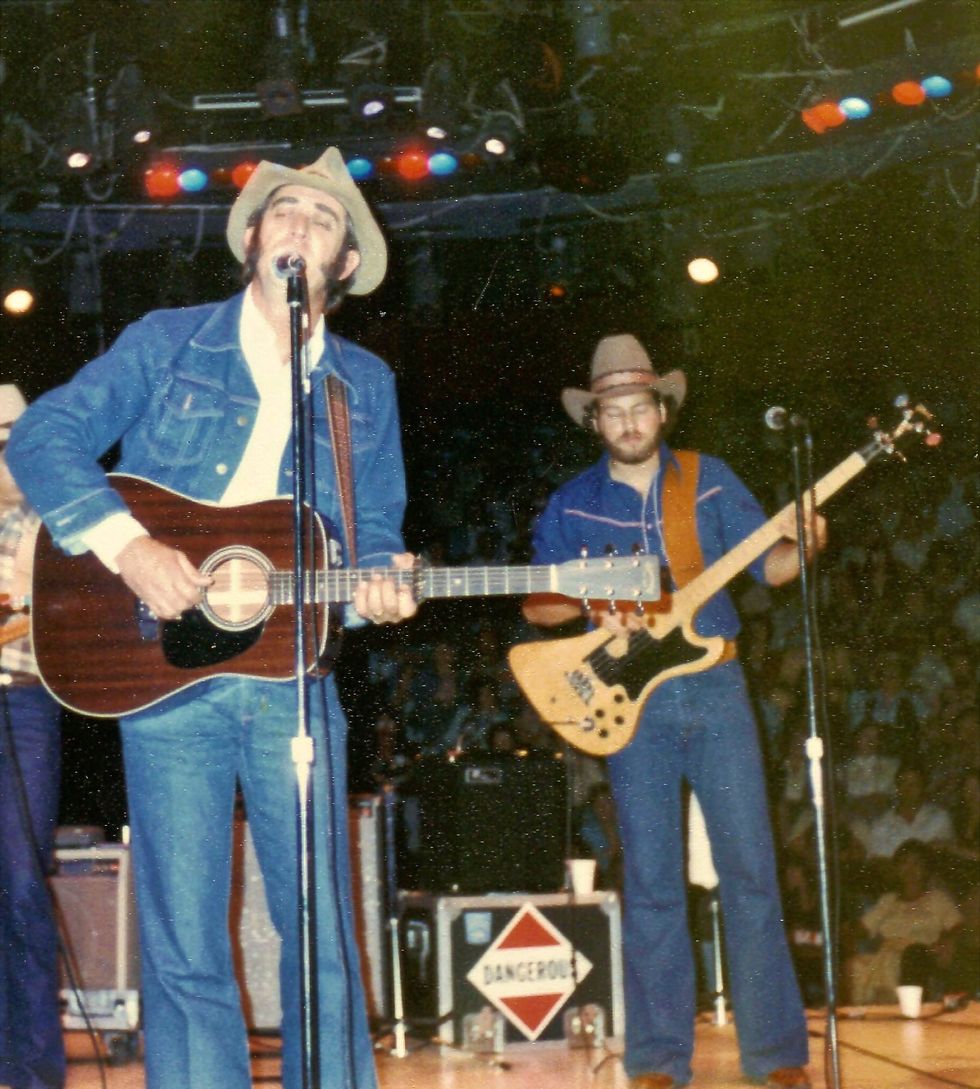
Pomeroy hit the road with Don Williams in 1980, and quickly learned the value of mutual respect and fair working conditions.
Rockabilly icon Sleepy LaBeef gave Pomeroy his first gig. LaBeef was a human jukebox, and would switch up sets every night. The law of the band was simple: Follow, or die. It was a crash course in ear and style training for Pomeroy. He bounced around until he landed his big break: backing up Texas country slinger Don Williams. Pomeroy played in Williams’ band for 14 years, from 1980 to 1994, and that time would shape the rest of his life. It was an incredible musical education, and it bridged him to new worlds in the music industry.
But more than those things, it was the consideration that Williams showed his musicians that changed Pomeroy’s life. “He treated us with great respect,” he explains, “and I didn’t realize for some time that that was not the norm, and that it was a lot worse for a lot of my colleagues and friends.” At 24, Pomeroy co-wrote a song with Williams, who helped get him a publishing deal. Williams also landed his road band a record deal on his label ,MCA and co-produced their self-titled “Scratch Band” record.
“He treated us with great respect, and I didn’t realize for some time that that was not the norm, and that it was a lot worse for a lot of my colleagues and friends.”
Working with Williams cemented the value of documenting his work with a union contract. In 1980, Williams and his band played a show at Giant Stadium in East Rutherford, New Jersey. A month later, Pomeroy’s friend called to tell him to turn his TV on. The gig had been recorded for Casey Kasem’s America’s Top 10 program, and was airing. Pomeroy was over the moon, but things got even better—a short time later, he got a $1,000 check for the airing. When it aired again, he got another $1,000.
Dave Pomeroy's Gear
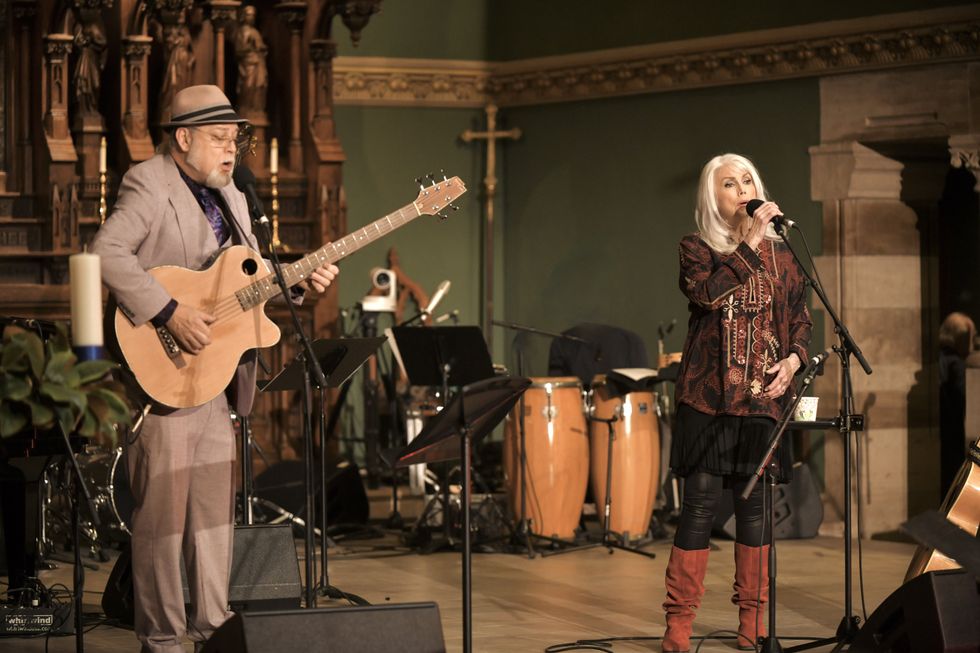
Over his 46 years in Nashville, Pomeroy has worked with the biggest stars of country and folk music. Emmylou Harris, performing with Pomeroy here in December 2023, brought him along to her sessions with the Chieftains in 1992.
Photo by Mickey Dobó
Basses
- Fleishman Custom 5-string electric upright
- 1967 Gibson EB-2
- G&L Fretted and fretless L-2000
- 1963 Fender Precision
- Alleva-Coppolo 5-string
- 1964 Framus Star Bass
- Reverend Rumblefish 4- and 5-strings
- Brad Houser 5-string
- 1980s Gibson Thunderbird fretted and fretless
- Lakland Jerry Scheff 5-string
- 1940s Kay
- Hamer 12-string
- Pedulla 8-string fretless
- Gold Tone Micro-Bass, Banjo, and Dobro
- Kala U-Basses – hollowbody and solidbody
- Jerry Jones 6-string baritone “tic-tac” bass
- Boulder Creek 4-string fretless and 5-string fretted acoustic basses
- Music Man 5-string
- Sadowsky 4-string
- Big Johnson – large acoustic fretted bass
Amps
- Genzler Magellan 800 Head with Genzler cabs
Effects
- Boss GT-10B
- Boss RC-50
- Boss RC-600
- SWR Mo’ Bass preamp
- Ampeg SVT preamp
- Line 6 Bass POD Pro
- Avalon U5 Class A Active Instrument DI and Preamp
- Trace Elliot V-Type preamp
- Morley wah pedal
- Morley volume pedal
Strings
- GHS Pressurewound, Brite Flats, Boomers, Flatwounds, and Round Cores
- Thomastick acoustic bass strings
“I thought, ‘Holy moly, this is how this stuff works?’” remembers Pomeroy. “There were so many times that we’d find out about these things with other artists, and nobody bothered to say anything; nobody turned it into paperwork. [They would say,] ‘Oh, I didn’t know we were supposed to get paid.’ I didn’t know we were supposed to get paid, but somebody took care of it. That was just the way Don was.”
Over the years, Pomeroy would perform and record with many celebrated artists, musicians, and songwriters in country, folk ,and bluegrass music, such as Earl Scruggs, Guy Clark, George Jones, Emmylou Harris, Chet Atkins, and Alison Krauss. He honed his voice on the instrument when he got an upright fretless electric bass, which he played on Keith Whitley’s 1988 record, Don’t Close Your Eyes. Pomeroy’s dramatic downward slide on “I’m No Stranger to the Rain” had his phone ringing off the hook. Harris invited him to play on her album, “Bluebird,” and he also joined her recording with The Chieftains in 1992, when she asked him to bring along “the bass from space,” her nickname for his electric upright. Pomeroy’s outside-of-the-box streak continued on his performances and arrangements of his song “The Day the Bass Players Took Over the World,” and his All-Bass Orchestra.
“They basically said, ‘Hey, these are our friends, and we’re not going to screw them over … We’re going to do this right.’”
Eventually, his path curved toward the studio world, where he started to take more notice of the local union’s role in making music. In the early 2000s, Pomeroy gravitated towards a subgroup of the AFM called the Recording Musicians Association, where he revived a sense of participation and engagement in negotiations. In 2008, he ran against the NMA’s incumbent president, Harold Bradley, who had held the post for 18 years. Pomeroy won the election, and has held the seat ever since.
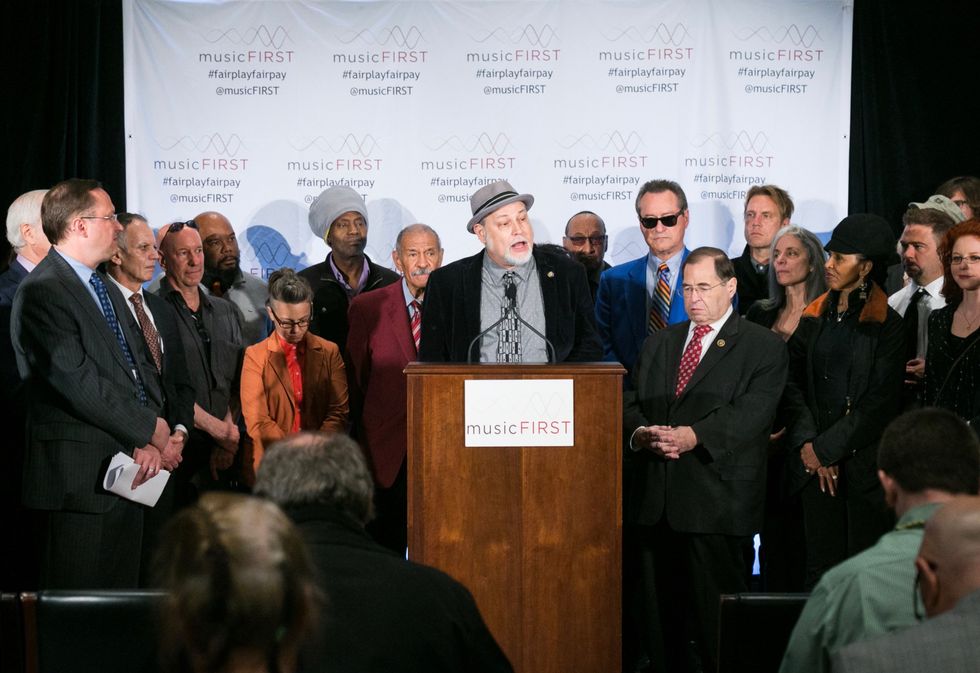
Pomeroy has advocated for better working conditions for artists for decades, including supporting the Fair Play Fair Pay Act in 2017, which addressed issues with terrestrial radio.
Photo courtesy of the Music First Coalition
The AFM’s single-song overdub scale agreement, a/k/a home studio contract, was created by NMA in 2012, and it wasn’t easy. There were drawn-out debates over where the pay floor should be. “Are we talking about ‘Mary Had a Little Lamb’ or are we talking about Mahler’s Symphony No. 6?,” says Pomeroy. The minimum, they decided, was $100, which can be negotiated upwards, depending on the difficulty of the job. But instead of simply being handing the player a crisp Benjamin, the employer would sign a piece of paper allowing the player to pay into their own pension, a first for AFM musicians.
The AFM “Tracks on Tour” contract was also a NMA creation. When Dolly Parton and Jason Aldean wanted to use recorded tracks onstage as part of their shows, they went to the NMA to work out how to do it right.
“I’m nice, but I’m also very persistent. I’m a Taurus. I’m not going to let things go. We’re going to work this out.”
Parton wanted a saxophone part in one of her songs without touring with a saxophonist, and Aldean wanted to use the acoustic guitar and piano from his hit ballad with Kelly Carson, “Don’t You Wanna Stay.” So, the NMA studied a Broadway touring show’s pay rates to come up with a scale for that situation, and the performers whose recorded work was being played earned up to $12,000 extra in a year, thanks to the formula. Some artists, says Pomeroy, can scheme their way around the scales by getting their road band to rerecord the parts for less money. “But a lot of artists are willing to pay to have the good stuff,” he says.
Pomeroy explains that at the start of its golden era, Nashville’s recording business was built on respect between employers and creators. Big labels like Decca and RCA Victor were run by Owen Bradley and Chet Atkins, respectively, and even though the labels wanted to turn a profit on “hillbilly music,” Bradley and Atkins were wise enough to know that they ought to give musicians a fair deal. “They basically said, ‘Hey, these are our friends, and we’re not going to screw them over. We got to play with them Saturday night at the country club, so we’re going to do this right, and do it on a union contract,’’ Pomeroy shares.
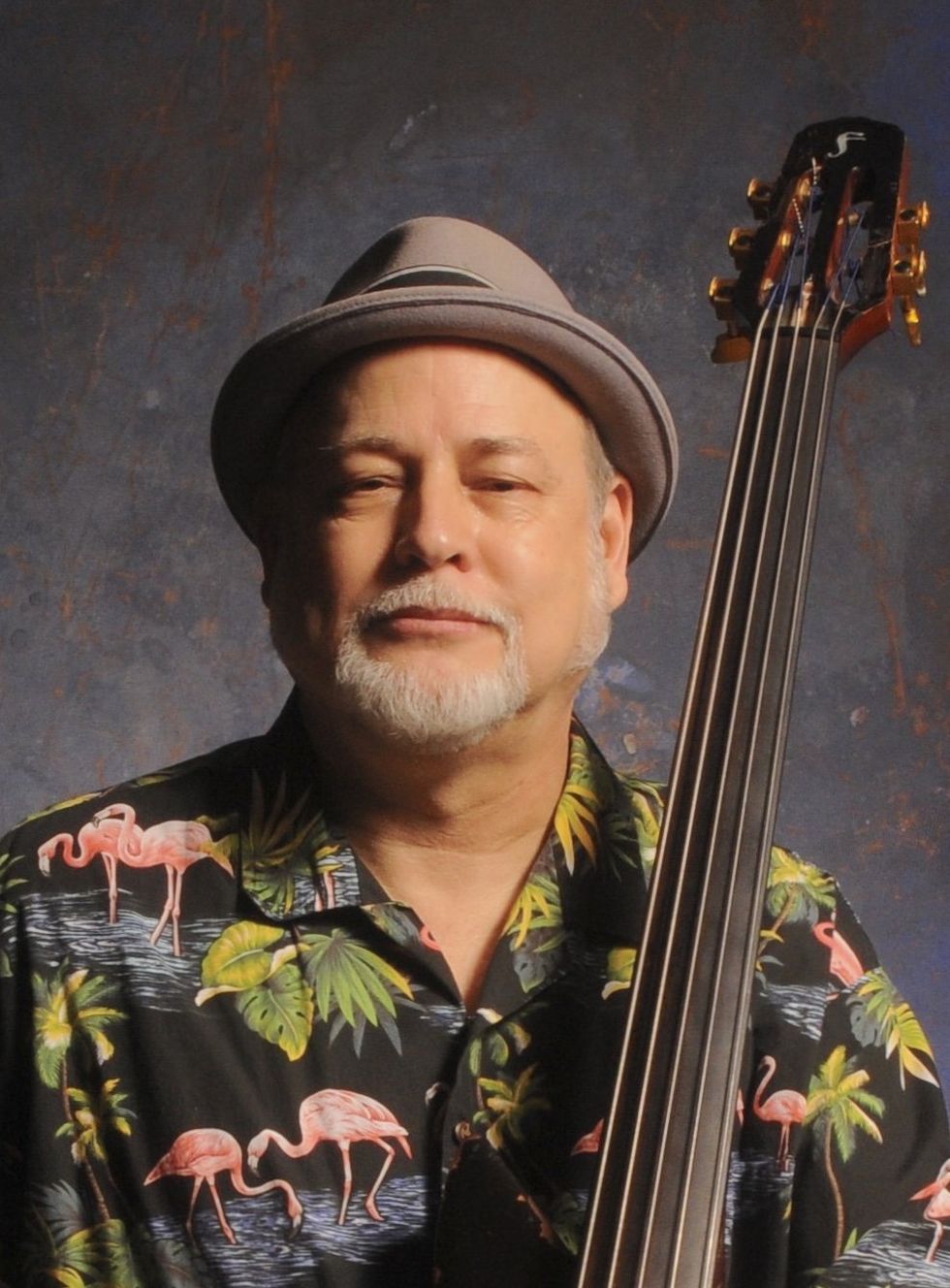
Pomeroy’s music and union work aren’t separate—they’re both part of a single vision, where artists can create and perform with dignity.
Photo by Jim McGuire
Sometimes, the dividends for doing this “right” are immediate and obvious. But other times, like Pomeroy experienced, they might take a little while to manifest. In 2014, Mazda used Patsy Cline’s “Back In Baby’s Arms” in a commercial for their new RX-7 car that ran for 2 years. A 90-year-old violinist who played in the song’s string section came into the NMA offices one day to pick up a New Use check for nearly $2,000. He told Pomeroy he’d been paid $57 to record his parts back in 1962. “That makes all the work worthwhile,” says Pomeroy.
A decent chunk of his work, says Pomeroy, falls into dealing with well-meaning people who might not have known they were shortchanging a musician, but need some reminding, all the same, to pony up. Other times, he and the AFM have to push a little harder to get musicians what they’re owed. “I chase people down,” says Pomeroy. “I’m nice, but I’m also very persistent. I’m a Taurus. I’m not going to let things go; we’re going to work this out.” Pomeroy says they’ve successfully sued for nearly a million dollars from employers who “didn’t want to do the right thing, and got to do the right thing the hard way.” Some of those people end up on Music City’s “Most Wanted”: the Nashville Musicians Association’s “Do Not Work For” list. It exists to warn both performers and the public about employers who are known to either break union contracts, or solicit union musicians to work outside a union contract.
All of this might seem separate or secondary to the actual creation and performance of music. But that belief, whether held subconsciously or expressed explicitly, is what has allowed musicians to remain overworked and underpaid for the past century, or more. If we really believe that music brings value to our lives, why shouldn’t the labor that enables its creation be supported fairly? And besides, musicians are workers like any other. If you saw a boss raking in stacks of cash while their employees struggled to make rent, you’d be pissed off, right? Well, that’s the situation a lot of music workers find themselves in these days. Pomeroy and the AFM have their work cut out for them.
But, it’s easier for Pomeroy when he sees a common ground between his music work and his union work. Sometimes, they collide, like on his song, “What Unions Did for You.” Each feeds and emboldens the other. “I have to have the creative stuff to balance out the administrative stuff,” says Pomeroy. “But in a lot of ways, the admin stuff that I do is a lot like being a bass player. You’re rushing, you’re dragging, it’s right here in the middle; let’s see if we can find that place where everybody’s gonna feel good.”
YouTube It
Dave Pomeroy bops through a solo performance of the riotous, bassman’s-rights tune “The Day the Bass Players Took Over the World” at the Country Music Hall of Fame.


